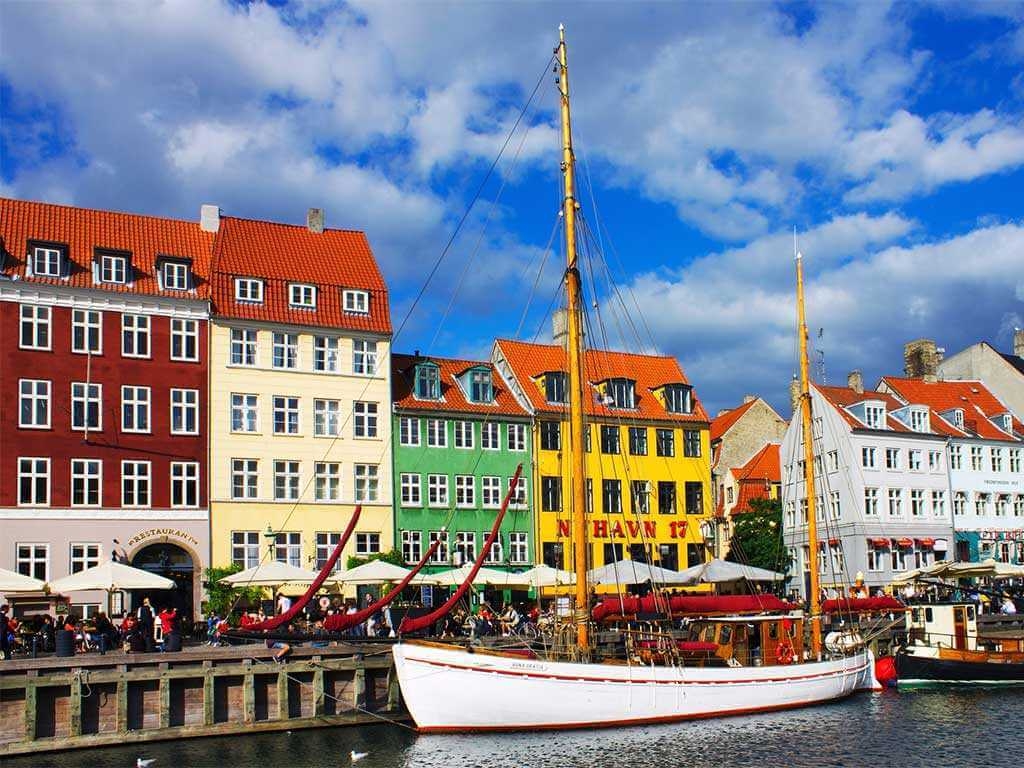

What Are OTAs (Online Travel Agencies) and Should You Book With One?

Scott Keyes
August 7, 2023
There are two ways to buy flights online: directly with the airline, or via an online travel agency.
Though buying directly with the airline is self-explanatory, online travel agencies (also known as OTAs) are a bit more complicated. When Going sends our members cheap flights , we typically recommend you book directly with the airline, as there are some clear benefits of doing so, but sometimes we'll point you to an OTA if the fare is significantly cheaper there.
And since one of the top questions travelers have is whether a given OTA is reliable, it’s helpful to understand more about what OTAs are before deciding for yourself if the potential savings are worth it.
What are online travel agencies?
Online travel agencies are companies that sell you flights, online. They act as a middleman between airlines and consumers, though their prices can often be cheaper than booking direct.
Most people are familiar with top OTAs like Expedia , Orbitz , Travelocity , Hopper, and Priceline . There are hundreds, if not thousands, of smaller OTAs as well, and more pop up all the time. Some smaller ones include OneTravel, Kiwi, GotoGate, JustFly, Vayama, Tripsta, TravelMerry, ExploreTrip, Kiss&Fly, Webjet, Travelgenio, Bookairfare, Fareboom, Skybooker, Travel2be, OneTwoTrip!, and eBookers.
How do online travel agencies work?
Online travel agencies work by plugging into a “ global distribution system ,” which is a fancy name for the market where airlines tell distributors what they’re charging for their flights.
When you book directly on an airline’s website, your ticket typically gets issued almost immediately. That’s because the airline is both the seller and provider of the ticket, so it’s rare that their system allows them to sell something they don’t actually have in stock.
With OTAs, especially smaller ones, there’s a delay between when you purchase the ticket and when you’re issued the ticket. That’s because, unlike the airlines, OTAs don’t actually have the tickets they sell. Instead, the OTA is the middleman, connecting customers with airlines and taking a small commission from the airline in the process.
When you click to buy a roundtrip Delta flight from New York to London for $400, what happens is the OTA charges your credit card $400, then turns around and checks with Delta to make sure that ticket is available at that price. This process can take anywhere from a few minutes to 48 hours; each OTA is different and there are a ton of variables impacting transaction time.
But unlike most middlemen, OTAs don’t typically jack up the price. In fact, they usually offer the same price—and often times a lower price—than you’ll find directly with an airline.
Why are fares sometimes cheaper on online travel agencies?
There are a few reasons why OTAs can sometimes offer cheaper fares than booking directly with an airline. They might:
- Sell flights less than cost . OTAs may sell fares for less than they cost, either as a loss leader (in the hopes you’ll book additional add-ons like a hotel or rental car) or in order to accrue market share (hoping you’ll book your next trip with them as well)
- Pass on the commission . Airlines dole out a commission every time a traveler books their flight through an OTA. The OTA, in turn, may pass some or all of that commission on to consumers
- Specific discounts . Airlines regularly negotiate with OTAs to allow them to sell certain flights at a discount. The airline may not want the lower fare broadcast too widely, so only one or two OTAs are given the discounted rate.
- Less customer support . Many smaller OTAs save money and offer lower fares by skimping on customer support.
- Big change/cancellation fees . Many smaller OTAs charge inflated change or cancellation fees in order to offer lower prices initially.
What benefit can online travel agencies have?
It can be cheaper. The main benefit of OTAs is they are often cheaper than booking directly with an airline. The same flight selling on United.com for $600 may cost $500 on an OTA, for example.
You can combine airlines for the perfect itinerary. Some OTAs like Kiwi let you purchase multi-airline itineraries. Airlines will only sell you their own flights (or partner airlines’ flights). Some OTAs, on the other hand, will let you buy a single itinerary that crosses the ocean on Delta, say, but then take your final leg on Ryanair.
What drawbacks can online travel agencies have?
The 24-hour rule may not apply. One of the best tools to have in your back pocket when buying flights is the 24-hour rule , which lets you cancel a ticket you booked without any penalty as long as you do so within 24 hours of purchase. This protection is guaranteed by the federal government, but only when you book directly with an airline . Some OTAs like Priceline offer their own 24-hour guarantee, but it’s not required by law and most OTAs make all sales final.
Customer service can be lacking. OTAs, especially smaller ones, often skimp on customer support. This can range from outsourced and minimally-staffed call centers to exorbitant fees if you need to change or cancel your ticket. Of course, this lack of support is part of how OTAs offer lower fares to begin with.
If things go wrong, it gets complicated. In addition, having a middleman can complicate any mishaps because airlines will tell you to coordinate any issues through the OTA rather than directly with the airline. And the OTA may turn around and push things back on the airline, leaving you stuck in the middle.
Mistake Fares are less likely to be honored. Finally, when there’s a Mistake Fare , booking through an OTA carries some risks. Think back to how OTAs operate. Unlike booking directly with an airline, booking through an OTA means going through a middleman, which can delay how quickly you receive your ticket after clicking purchase. For normal fares this rarely makes a difference because the fare is far less likely to imminently change. But for Mistake Fares, which can disappear any minute, that delay in receiving your ticket can be the difference between your purchase being honored and it being politely refunded with the quoted fare no longer being available.
This delay between purchasing and ticketing is one of the reasons why we recommend people wait a week or two before making any non-refundable travel plans. But once you’ve got an e-ticket number with the airline and can see your itinerary on the airline’s website, you should be all set.
How do OTAs make money?
Online travel agencies make money by taking a commission from the airline, hotel, car rental agency, or cruise line when you book.
(At Going, we don't take any commissions from the airlines when we send our members deals. We make money when members pay for our services, which means our number one priority is making members happy, not getting them to book specific flights that line our pockets.)
Am I going to get scammed by online travel agencies?
If you’re worried that a smaller OTA will take your money and not give you a ticket, don’t be.
The worst you can expect is that, on occasion, you purchased a fare that no longer existed when you bought it. If that happens, they will reach out to you (almost always within 48 hours or less) to tell you your ticket can’t be sold at that price. At that point, you’re given the option to either purchase at a higher price or have the entire transaction voided and your money refunded.
Why do some online travel agencies have terrible reviews?
It's true that some online travel agencies have bad reviews. Does that mean you shouldn't use them? There are two schools of thought here.
The first is that these reviews are worthwhile because other people’s experiences can be instructive.
The second is that the nature of internet reviews tends to skew towards negative experiences. How many people whose flight was uneventful are then motivated to go back and write a review for the OTA they purchased it from?
Another other reason it can be worthwhile to take a nuanced approach to negative reviews is that they tend to come from folks who didn’t understand how smaller OTAs operate. They may have been unaware of the higher change/cancellation fees, outsourced customer service representatives, or the delay between purchasing and ticketing. Obviously those aspects of smaller OTAs aren’t ideal, but its those factors that also allow for often-substantial price savings.
Are all airlines listed on OTAs?
No, unfortunately not all airlines are listed on all search sites. Notably in the US, Southwest fares aren't listed on Google Flights. Often, smaller regional carriers don't work with the large OTAs so you'll need to search those directly.
Should I book through an OTA or directly with an airline?
This is the million-dollar question. On the one hand, an OTA fare may be hundreds of dollars cheaper than booking directly. On the other hand, it’s completely understandable to be hesitant about booking a flight through an OTA you’ve never heard of before.
There are a few cut-and-dry situations. If the price is the same booking directly with the airline versus booking through an OTA, there’s almost never a reason to book through the OTA.
Conversely, if the OTA price is over $500 off the direct price, of course an OTA is the way to go.
But for more gray-area situations, it mostly comes down to a personal comfort level.
Questions to consider:
- How certain are you to take that specific flight? If there’s more than a 10% chance you’ll want to change or cancel your flights, the initial cost savings may not be worth the potential fees for altering your plans.
- Are the potential savings worth it? If the OTA savings is $5, most people would be wise just to book direct. If the savings start to become substantial, it starts to become a matter of individual comfort. Is paying an extra $50 worth the extra peace of mind of booking directly? $100? $200?
- Is it a Mistake Fare? Because booking through an OTA can lessen the chance a mistake fare is honored, the potential savings should be higher to make it worth it. Someone may prefer to book through an OTA if the savings exceed $50, but might increase that savings threshold to $100 if it’s a mistake fare, for instance.
Join Going and save up to 90% on your next flight. We're not an OTA—we just let you know when fares drop to amazing prices that can save you hundreds.

Founder & Chief Flight Expert
Published August 7, 2023
Last updated January 9, 2024
Articles you might like

How to Find Cheap Flights in 2024: The Ultimate Guide
Apr 8, 2024

Why Are Flights So Expensive Right Now?
Apr 2, 2024

10 Flight Booking Hacks to Score Cheap Flights and Travel for Less
Apr 1, 2024
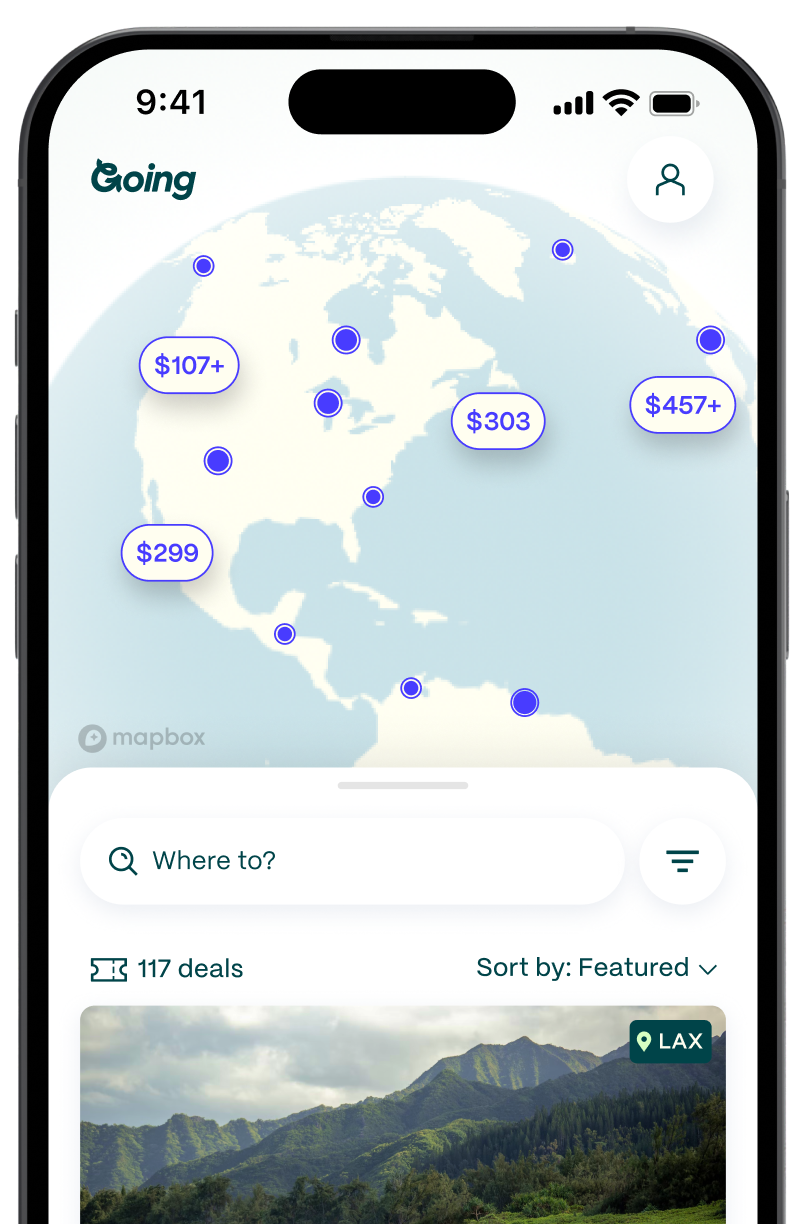
- Property Management System
- Channel Manager
- Booking Engine
- Marketplace
- Revenue Management
- Cloudbeds Payments
- Cloudbeds Amplify New!
- Whistle for Cloudbeds New!
- B&Bs and Inns
- Hotel Groups
- Vacation Rentals
- Channel Connections
- Ambassador Partner Program
- Cloudbeds Horizon
- Become a Partner
- Case Studies
- Resource Center
- Guides & Reports
- Calculators
- What to Expect
- Customer Success
- Knowledge Base
- Product Updates
- Cloudbeds University
- Government Compliance
- Company News
- Meet the Team
- Careers We're Hiring!
- Become an Ambassador
- Event Schedule
- Cloudbeds Amplify
- Whistle for Cloudbeds

What are online travel agencies? The ultimate guide to OTAs
Love them or not, online travel agencies (OTAs) play a critical role in every property’s distribution strategy. According to Expedia Group’s 2023 Path to Purchase report, OTAs captured 51% of online hotel & lodging bookings and possess the visibility and marketing power that most individual properties cannot achieve on their own.
Working with OTAs isn’t just a matter of signing up and hoping for the best. To take advantage of the opportunities and avoid the pitfalls, you need to actively manage your listings, pricing, and inventory and take a strategic approach to online distribution.
If done correctly, adopting the right OTAs as part of your distribution strategy can actually help drive direct bookings through the “billboard effect.” Building a comprehensive channel mix incorporating different types of OTAs will ensure you reach your target audience and secure a steady stream of reservations.
See which OTAs dominate globally, regionally, and across property types based on Cloudbeds customer data and how properties like yours use OTAs as part of their distribution strategy.
At Cloudbeds, we know the world of OTAs and distribution channels can be complex. We’ve created the Big Book of OTAs to help demystify this process and explain how to create a recipe for success when working with third-party distribution channels.
What is an online travel agency (OTA)?
An online travel agency (OTA) is a website that acts as a search engine for travel. They connect providers across the travel industry to help travelers easily plan their trips. On OTA sites, travelers can often access package deals with accommodations, airfare, cruises, rental cars, and more .
On average, travelers view 141 pages of travel content in the 45 days before booking a trip, with OTAs making up 67 of those pages. Therefore, properties must be active on as many channels as possible to increase brand awareness and drive bookings — both OTA bookings and direct bookings (more on this later). With the increased popularity of OTAs around the world, hoteliers now have access to markets once unattainable.
How do OTAs work?
Online travel agencies emerged in the 1990s, using the internet’s extensive reach to aggregate global travel supply into a single place so consumers could book their own travel online. These self-service tools reshaped the hotel industry and the way travel was researched and booked, as the general public could now easily plan their trips and reserve their airfare, accommodations, and tours on their own rather than rely on a physical travel agent.
Sites such as Expedia.com, Booking.com, Airbnb, Orbitz, Hotels.com, and TripAdvisor are often consumers’ first stop when researching and booking their next trip. These sites offer a seamless user experience at all stages of the buying process: problem/need recognition, information search, evaluation of alternatives, purchase decision, and post-purchase behavior.
Properties of all types and sizes can connect to multiple OTAs through an integrated channel manager . A distribution system, like a channel manager, shares room inventory and rates from your property management system (PMS) to your booking engine and OTAs. Properties that use a channel manager can streamline hotel operations, increase hotel revenue via revenue management best practices , and increase occupancy across channels (all without the fear of overbookings).
OTA business models
Hotels form partnerships with OTAs by basically outsourcing marketing to OTAs, who then make money through two business models: the merchant model (guest pays the OTA in advance) and the commission model (guest pays the hotel at check-in or check-out). Most OTAs offer a blended model so that hotels can let guests choose which option they’d prefer.
The merchant model
In this model, the online travel agency acts as the merchant of record and collects payments from guests at the time of booking. Once the guest has checked out, the OTA pays the hotel. Contracts exist between hotels and OTAs to provide a set number of rooms to the OTA at a favorable rate. The OTA then makes a profit off each room sold but must meet its contractual thresholds.
The agency (commission) model
In this model, the consumer books via the OTA but pays the hotel directly at the time of checkout. The hotel then pays the OTA a commission on the total value of the booking after checkout. There are no contracts, and rates are set by hotel management.
The advertising model
This model has increased in popularity and exists on metasearch sites such as Google Hotel Ads, Tripadvisor, Trivago, and KAYAK. Metasearch engines work primarily on a cost-per-click basis where hotels can promote their rooms with links to their direct booking engine, and pay a fee based on the number of clicks they receive. Some of these sites, such as Google, also offer a cost-per-acquisition model (also known as “pay per stay”) where the property pays a percentage of the total reservation cost upon completion of the stay.
For hotels, it can be frustrating to watch distribution costs rise without getting more in return, but there are costs associated with direct bookings too. Demand doesn’t appear without at least some sort of distribution or marketing strategy in place, and those marketing campaigns, loyalty offers, special deals, and direct booking tools have a cost to the hotel. That’s why it’s important to use OTAs wisely and in conjunction with your own direct marketing strategy.
Online travel agencies vs. online travel agents
Before the rise of OTAs, it was the role of a travel agent to book leisure and business travel. This is because travelers back then did not have access to hotel availability and rates the way we do today. While the internet has made it easier for travelers to book their own trips online, some segments like luxury, corporate, and group travelers still prefer to utilize a person, or online travel agent, to help plan and book a trip.
Travel agents are beneficial when planning complex trips such as a destination wedding, honeymoon, or corporate trip. They have the expertise and connections to find unique accommodations at better rates than most people can find themselves.
Travel agents such as Kuoni have a team of destination experts who work behind the scenes to curate tailor-made accommodations, experiences, and itineraries. Their in-person stores allow travelers to enjoy a glass of champagne while meeting with a travel expert to plan their dream vacation.
Travel agents usually have a portfolio of properties they recommend to travelers and take a commission fee, similar to OTAs. Strong relationships with travel agents can help properties drive more bookings in alternative segments than the OTA market.
Difference between OTAs and metasearch
With so many online booking channels available today, it can be challenging to understand the difference between certain channels.
Metasearch websites like Skyscanner act as aggregators and display hotel information and room rates from a variety of online channels, including OTAs like Agoda, Trip.com, Travelocity, or Priceline.com and a hotel’s website. It enables travelers to compare all of their hotel booking options in real time across the web so that they can book the best deal.
OTAs provide room rates and booking capabilities for only one channel — their own. Meanwhile, metasearch sites can display up to twenty or more results.
Properties can invest in hotel marketing efforts through metasearch engines. Metasearch sites rank listings and it pays off to be near the top. Paying to have your listing higher in the ranks to drive more direct bookings can drive serious results.
Is Google an OTA?
Google is often a traveler’s first stop when looking for a hotel room. In recent years, Google has changed the hospitality industry with its products. Google offers Google Hotel Search, which acts as a hotel metasearch platform. When a traveler enters a property’s name into Google, it will show all of the rates and listing information from across the web.
Google also has free booking links , a game-changer for independent hotels as they can list their direct rates and links to their own website within the Google Hotel Search box. This option encourages potential guests to book direct.
The Big Book of OTAs
- First name *
- Last name *
- Property Name *
- Property Type * Property type* Hotel Bed and Breakfast Hostel Apartment Groups Vacation Homes Alternative Accommodations
- How many listings do you have?
- How many Addresses does your business have?
- Language for your demo * English
- Increase revenue
- Delight guests
- Streamline operations
- Property Name
- Property Type Property type* Hotel Bed and Breakfast Hostel Apartment Groups Vacation Homes Alternative Accommodations
- Postal Code
- Language for your demo English Spanish Portuguese Franch Vietnamese Japanese Thai Italian
- Cloudbeds Hospitality Platform
- Cloudbeds Websites
- Ambassador Program
- Cloudbeds Login
- Terms of Service
- Privacy Policy
- Data Security
- Cookie Policy
- Accessibility

ColorWhistle
Digital Web Design Agency India

Explore our Market-Fit Services
We ensure to establish websites with the latest trends as we believe that, products whose value satisfies the needs of the market and its potential customers can be efficiently successful.
Quick Links
- About Us – ColorWhistle
- Engagement Models
- Testimonials
- Case Studies
- Agency Services
- Web Development
- Web App Development
- Digital Marketing
- Travel Website Development Services Company
- Real Estate Website Development Services Company
- Education Website Development Services Company
- Healthcare Website Development Services Company
- Hotel and Restaurant Website Development Services
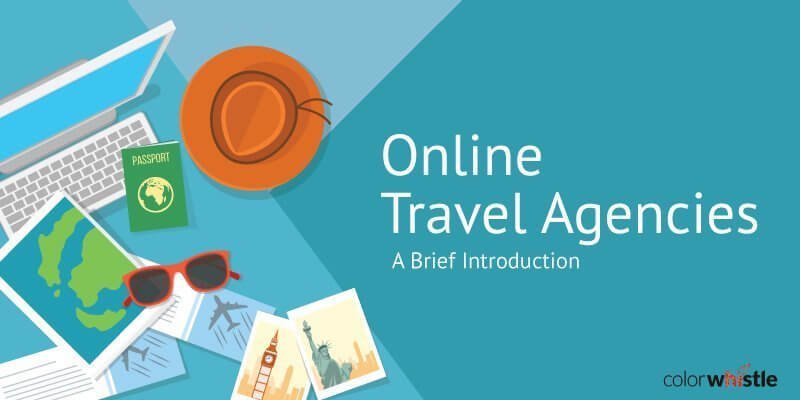
Category: Travel
Date: October 20, 2023
Online Travel Agencies – A Brief Introduction
The role of an online travel agency (OTA) is becoming increasingly important in the accommodation industry as they provide a convenient way for travelers to arrange their stay. From the comfort of their home, travelers can compare hotel prices and book them over the internet.
In this blog, we are going to discuss what an OTA is, the best OTA platforms, travel website development and how to do it right, and more.
Ready? Let’s go.
What Are Online Travel Agencies?
An online travel agency (OTA) arranges and sells accommodations, tours, transportation and trips on an online platform for travelers. They are third parties who sell services on behalf of other companies.
Usually, these OTAs offer many benefits with added convenience with more of a self-service approach. They also include a built-in booking system which allows instant bookings.
How Do Online Travel Agencies Work?
OTAs generally work on two models. They are,
1. Merchant Model
In this model, hotels sell rooms to OTAs at a discounted or wholesale price. Then, the OTA sells them to the customer at a markup price
2. Agency Model
This is a commission-based model where OTAs acts as a distribution partner. OTAs receive full commission after the stay has taken place. The hotel directly receives the payment from the end customer and does not wait for the payment transfer from third-party distributors.
What Are the Benefits of Partnering with Online Travel Agencies?
In one word – exposure! Online travel agents get thousands of website visitors from all over the world. Plus, they have positioned themselves as an authority on everything related to travel. So, people trust the recommendation they receive from OTAs.
By listing in OTAs, accommodation businesses like hotels not only reach a vast set of audience but will also find their service among many other reputable sources of information.
In addition, hotels that are listed on OTAs can also benefit from what is referred to as the ‘billboard effect’. This means that OTAs provide a form of advertising for service providers such as hotels on their platforms. Once the user gains this awareness, they may even go to the website of that particular hotel to make a direct booking.
What Are the Advantages and Disadvantages of Selling Through Online Travel Agents?
Accommodation businesses like hotels and B&Bs have pros and cons of getting listed in OTAs. Let’s take a look at them.
Advantages Of Online Travel Agents
- Low-cost method of selling accommodation services
- Reduced online marketing spend as OTAs invest in advertising to attract potential customers
- Impartial reviews give customers the confidence to book
- Users can easily compare various accommodation costs at one place
Disadvantages Of Online Travel Agents
- Commission rates are charged on every sale. It can range between 10-15% of the gross cost
- Restrictive cancellation terms
- Even if accommodation businesses use OTAs, the need for their own website and booking engine does not go away
- Investment in a balanced multi-channel strategy may be needed to boost sales
Even though OTAs can help to fill your rooms, accommodation businesses must try to maximize revenue through their own website. Consistent work on search engine optimization tactics and other digital marketing techniques is a must. Accommodation businesses must focus on customer retention techniques and directly target their existing customers through emails and direct marketing.
How To Start An Online Travel Agency?
Travel agencies no longer inform customers about the availability of flights and rooms. They issue rooms and get a commission from the respective accommodation businesses. That is why most of the new travel businesses follow the OTA model.
If you plan to enter the OTA arena, you can specialize in pilgrimages, leisure travel, business travel or any niche. But, focusing on how effectively you offer things is the key to success.
Here Are Some Points You Have To Consider When Starting An Online Travel Agency.
- Register the name of your agency and if applicable, take a license as per your local laws
- Try to get a membership in IATA or any other reputed travel organization
- Gain more knowledge about the travel industry and particularly the nice you want to concentrate
- Get your travel website designed by a professional company like ColorWhistle
- Offer deals that focus on a specific geography. Focusing on a particular niche will also bring more success
- Publicize your business in the online space
- Utilize the power of blogging
- Create a good social media presence
Why Do People Use Online Travel Agencies?
here are some of the main reasons they prefer ota’s..
- Few OTAs offer reward programs which can be used for future travel needs
- Special rates which cannot be found elsewhere
- Some OTAs may have generous cancellation policies. For example, Priceline does not offer any penalty if the user cancels the ticket until the end of the next business day
- Most users may not have an idea on where to book other than an OTA
- OTAs make it easy to compare different rates
Who Are the Top Online Travel Agents?
1. booking.com.
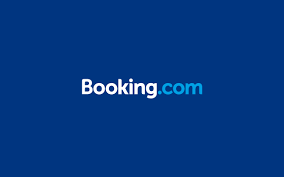
Booking.com is one of the largest accommodations websites which has now expanded to smaller markets such as family-operated bed and breakfast, vacation rentals and self-catering apartments.
Interesting statistics
- Every day, 1,550,000 nights are booked
- 68% of nights booked came from families and couples
- 42% of nights booked came from unique places such as homes and apartments
- 38% of reviews are given by guests which are useful for other travelers
- 75% of nights booked come from guests who booked more than 5 times
2. Expedia’s Hotels.com
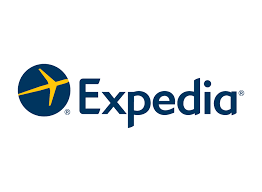
Expedia’s Hotels.com is a popular brand which has a global audience and attracts diverse travelers. The company gained more power in the industry by acquiring Travelocity.
- Gets over 675 million monthly site visits
- Operates in 70+ countries and 40+ languages
- Attracts 75 million monthly flight shoppers
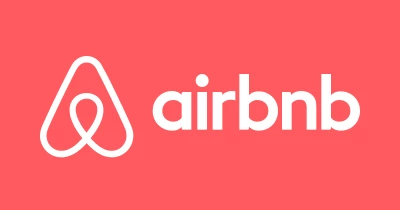
Airbnb revolutionized the travel accommodation industry by introducing home-sharing. The website has diverse listings and travelers get a sense of safety as they can know their guest’s identity.
- 2.9 million hosts are present on Airbnb
- Average of 800k stays each night
- 14k new hosts join every month
Apart from these major OTAs, there are many small ones such as OneTravel, Vayama, Tripsta, TravelMerry, ExploreTrip, Kiss&Fly, Webjet, GoToGate, Travelgenio, Bookairfare, Fareboom, Skybooker, Travel2be, OneTwoTrip!, and eBookers.
Drive Conversions and Boost your Business with Expert Travel Website Development.
What the future holds for online travel agencies.
It is clear that, in the near future, accommodation businesses are not about to back down from OTAs. They are enjoying the billboard effect and trying their best to retain website visitors and convert them into direct booking.
Sure, there is a cost involved. The upside of this is that accommodation businesses are working hard to create a loyal customer base that will continue to seek direct bookings.
The chances of OTAs suffering in the long run are pretty slim. Smaller accommodation businesses have a lot to gain from the exposure they receive through OTAs. Plus, a large portion of the younger generation prefers OTAs. So their market will continue to grow.
If you need any help to design, develop or market an OTA website, contact our travel web design and development experts at ColorWhistle .
We can create an amazing website with beautiful designs combined with dynamic content such as live rates and special offers. Contact us today for your free business analysis and consultation.
In quest of the Perfect Travel Tech Solutions Buddy?
Be unrestricted to click the other trendy writes under this title that suits your needs the best!
- Travel Meta Search Engine
- GDS Travel Agency Guide
- GDS OTA Travel Meta Searchengines
- Travel Aggregator Website
- Best Travel Websites Inspiration
- Travel Website Features
- Top WordPress Travel Website Themes
Related Posts
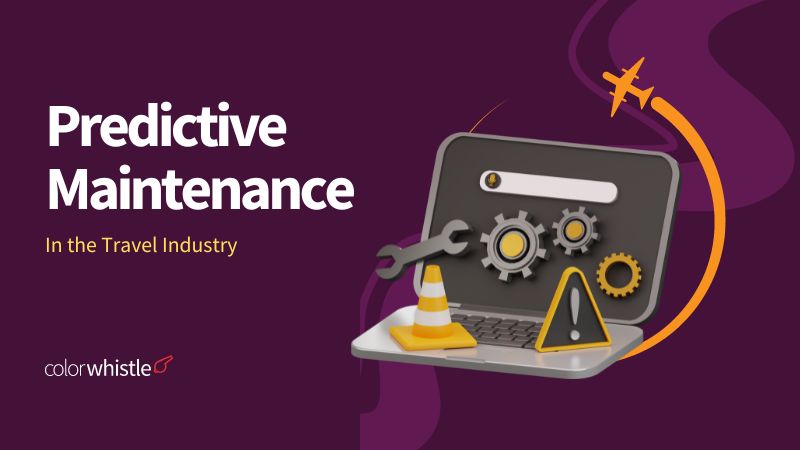
How Predictive Maintenance Can Help the Travel Industry

Exploring the World Through AI and VR in the Travel Industry
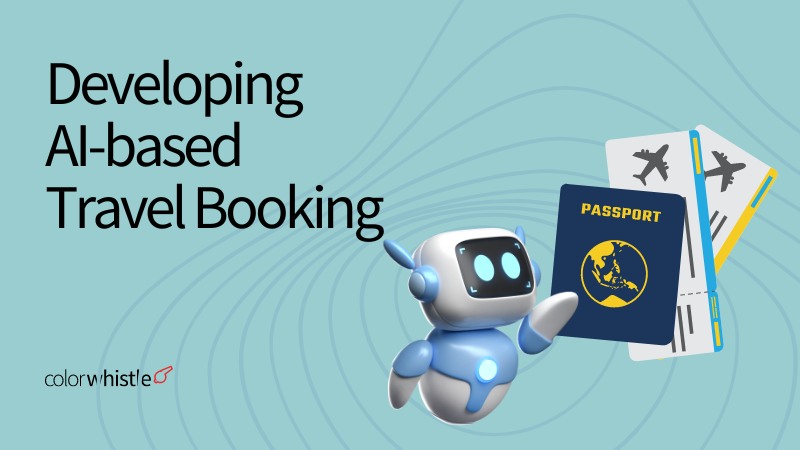
How AI-based Travel Booking Applications Can be Developed?
About the Author - Anjana
Anjana is a full-time Copywriter at ColorWhistle managing content-related projects. She writes about website technologies, digital marketing, and industries such as travel. Plus, she has an unhealthy addiction towards online marketing, watching crime shows, and chocolates.
View Our Services
Have an idea? Request a quote
Share This Blog
its a good website i love it
i think it is a great website i love it so much but i need more information about what am looking for. thanks
It is a good website and I need more information for learning
I learned a lot through this web.
Leave a Reply Cancel reply
Your email address will not be published. Required fields are marked *
Ready to get started?
Let’s craft your next digital story

Sure thing, leave us your details and one of our representatives will be happy to call you back!
Eg: John Doe
Eg: United States
Eg: [email protected]
More the details, speeder the process :)
What is an OTA? Online Travel Agency Defined

In the ever-expanding realm of hospitality, the term ‘OTA’ is frequently tossed around. But what exactly does it mean, and why is it crucial for your vacation rental business?
Today, we’re demystifying the enigma of OTAs.
What is an OTA (Online Travel Agency)?
OTA stands for Online Travel Agency. These digital platforms, like Airbnb , Vrbo and Booking.com , act as intermediaries between hosts like you and travelers seeking accommodation.
Think of them as online marketplaces or booking platforms that connect your beautiful vacation rental property with a global , local or niche audience of potential guests.
Why OTAs Matter for Vacation Rental Hosts
OTAs play a pivotal role in the success of vacation rental businesses. They offer unparalleled visibility, putting your property in front of millions of travelers actively searching for unique and comfortable stays.
By listing your property on these platforms, you tap into a vast reservoir of potential guests, boosting your occupancy and revenue .
Benefits of Using OTAs
1. global exposure.
OTAs provide a worldwide platform, enabling your property to be discovered by a variety of traveler segments from every corner of the globe. This exposure can significantly boost your bookings .
2. Streamlined bookings for guests
OTAs offer user-friendly interfaces that simplify the booking process for guests. Travelers can easily view your property, check availability, assess your level of service, and secure their stay, enhancing their overall booking experience .
3. Credibility and trust
Being listed on reputable OTAs lends credibility to your vacation rental. Travelers often trust these platforms due to their – real or assumed — verification processes , leading to increased confidence in booking your property.
4. Payment security
Most OTAs handle payment transactions , ensuring a secure payment process for guests. This eliminates guest concerns about payment fraud and provides confidence to book.
How OTAs Make Money
OTAs operate on various business models, generally catering to both hosts and travelers.
Commission model
The most common approach, the commission-based model is where hosts list for free but pay a percentage of their booking amount to the OTA as a commission for every successful reservation. This incentivizes OTAs to promote your property as their earnings are directly linked to your bookings.
Many of the OTAs that use this approach also charge a commission from guests.
This is the model used by Airbnb, Vrbo, Booking.com, Expedia , etc.
Subscription model
In this model, the OTA charges hosts a fixed amount to list their properties on the platform, regardless of the number of bookings. This model is used by platforms such as Furnished Finder .
The platforms may or may not charge guests a booking fee.
Hybrid model
Some OTAs offer a hybrid model, combining aspects of both commission and subscription fees.
A few OTAs have their own distinctive model. For example, Hopper doesn’t charge hosts or guests a commission. Instead, it adds a dynamic markup to the rate provided by each property. Got2Go doesn't charge hosts either while guests pay a service fee per booking or an annual subscription.
Maximizing Your OTA Experience
To make the most of OTAs, optimize your property listings .
High-quality photos , detailed descriptions and competitive pricing can significantly enhance your visibility and attract more bookings . Moreover, prompt responses to guest inquiries and positive guest reviews can bolster your property's reputation and search rankings , leading to higher conversion .
Make sure you’re taking into account each platform’s unique requirements and preferences and optimize each listing accordingly.
OTAs vs Metasearch Engines
OTAs and metasearch engines serve distinct purposes in the online travel industry.
OTAs, as mentioned earlier, are platforms where hosts list their properties, and travelers can directly book accommodations. These platforms facilitate the entire booking process, including payment transactions and communication between hosts and guests .
Metasearch engines, like Google Travel and TripAdvisor , aggregate information from various OTAs and other sources, allowing travelers to compare prices and availability across different platforms. Metasearch engines redirect users to the respective OTA listings or direct booking websites to complete their reservations.
While both OTAs and metasearch engines contribute to a property's online visibility, OTAs offer a platform for booking directly while metasearch engines redirect to an OTA or direct booking listing.
Key Takeaway
Embracing OTAs is not a choice for most vacation rental property managers and hosts — it’s a necessity. By leveraging these platforms wisely and effectively, you open the door to a world of opportunities for your vacation rental business.
Ready to find out how Hostaway can transform your business?
Launched in 2015, Hostaway has helped thousands of vacation rental property managers regain their focus on growing their business. Hostaway takes pride in aligning itself with the needs of the fast evolving landscape and always provide reliable technology and great support. Sign up today!
Don't get stuck in a broken routine with poor software, manage your properties with Hostaway and experience a better business and life right away!

The Complete Guide to Booking Travel Online
What is an online travel agency, and what are the best sites and apps to use to search for hotels and flights we break it all down for you..
- Copy Link copied

There’s a lot to navigate when researching and booking travel online.
Photo by Rawpixel.com/Shutterstock
My first travel adventure was to Venezuela. I booked the ticket with a travel agent over a pay phone. The agent searched a dozen flight itineraries over a few days, all so I could save $15.
Times have changed. Today, flight searches start online , often on your mobile device. Passengers book either directly with the airline or hotel or with online travel agencies. Rarely do we get on the phone. In fact, American Airlines and United Airlines charge $25 to make a domestic flight booking by phone. And pay phones hardly exist anymore.
So, what is the best way to book online? Here is our complete guide to online travel agencies, search tools, and the variety of booking options available on both mobile devices and desktops.
What is an OTA?
An online travel agency, or OTA, is a website or mobile app that allows users to search for and book travel services such as flights, hotels, car rentals, cruises, and activities. The booking is made directly with the online travel agency but confirmed by the service provider, such as an airline or a hotel. As a customer, your relationship is with the OTA.
What are the main OTAs?
Many online travel agencies nowadays are owned by two main companies: Expedia and Priceline. The Expedia Group is the largest online travel agency in the United States with 70 percent market share, according to travel data firm Phocuswright. Expedia Group operates Expedia.com , Orbitz, Hotels.com , Trivago, CheapTickets , Hotwire , Vrbo , and Travelocity .
Priceline is a major competitor to Expedia, with global revenues larger than the Expedia Group. The company owns Priceline.com, Booking.com, Cheapflights, Momondo, and Kayak—the latter two being metasearch engines (more on that below).
There are also independent newcomers such as Hopper (a mobile-only booking tool) and Kiwi.com (which allows you to book flights on air carriers that don’t normally have a commercial relationship).
Are OTA fares lower than booking directly?
Generally, no. The fares that are displayed by an OTA will be similar if not slightly more expensive when compared to an airline’s website. They’re usually only a few dollars higher or lower. The OTAs charge a booking fee to the airlines, and often that fee is passed directly to consumers. For example, Lufthansa tacks on an additional $18 to any booking made through an OTA for Lufthansa flights. The same flights are exactly $18 cheaper on the airline’s website.
Where you can score a good travel deal through an OTA is when booking a last-minute hotel and flight package. Many OTAs have cut agreements with airlines allowing last-minute travelers to access lower rates than are typically available when passengers book a flight alone.
Are all airlines available to be booked through OTAs?
No. Many OTAs do not display flights from some of the low-fare leaders. For example, Southwest and Allegiant flights are not available through OTAs; the same goes for Ryanair in Europe. And, earlier this year United Airlines threatened to pull out of Expedia altogether, only recently signing a multi-year agreement to stay in. The airlines would rather not lose any margin to online travel agencies in an already low-margin industry and would rather maintain a direct relationship with the customer.
Are smaller OTAs safe to use?
Expedia and Priceline are the two largest players in the online booking space, but there are dozens of independent OTAs, such as CheapOAir, OneTravel, JustFly, and SmartFares. Confusingly, you might actually stumble on ads for these OTAs while using Expedia or Priceline sites. That’s because the larger OTAs earn revenue through advertising, sending passengers to smaller OTAs and charging those OTAs for the favor.
Buyer beware: some of these lesser-known OTAs are masters at hidden fees. For example, a flight search on JetBlue allows for free seat selection in many instances. If you perform the same search on FlightNetwork, an independent OTA, and select a seat, you will be charged an additional $25—despite the fact that JetBlue doesn’t charge a seat selection fee if you book directly.
What if you need to change your itinerary?
Itinerary changes are often a pain. If your plans change, it won’t matter whether you’ve booked directly with an airline or with an OTA—you’re going to pay fees for the privilege, if you can even change your ticket at all.
For example, CheapTickets.com, which is part of the Expedia Group, charges $25 to change or cancel a ticket if that change is requested after 24 hours of making the booking—it is free if you do so within 24 hours of booking. However, the fees go up from there. JustFly, an independent OTA, charges a $75 fee for changes to domestic flights in addition to airline change fees, plus the difference in fare, for tickets that can be changed. For an international trip, the fee rises to $200. That means to change an international flight with Delta (which charges a $100 change fee) booked through JustFly, you’ll be assessed $300 in fees, plus the difference in fare. At that rate, you may as well book a new flight. FlightNetwork indicates in its terms of service that changes may incur a change fee but doesn’t specify what those fees are. That hardly makes the few dollars you saved by booking with the OTA in the first place worth it.
What is an OTA price match policy?
To assure travelers that they are getting the lowest fare possible, many OTAs have a price match policy. The rules vary and so do the benefits.
For example, if you book with Orbitz and find a less expensive flight, car rental, or activity on any U.S.-based website within 24 hours of your booking, Orbitz will refund you the difference you paid. And it works: I have personally found a flight in the same class, on the same airline, for the same origin and destination cities, and requested Orbitz to refund the difference of around $35. Within a few weeks, I received a check in the mail. A similar program applies for CheapOAir, but there’s a catch—the price difference must be found on a major OTA such as Expedia or Travelocity.
Expedia has a particularly good price match policy, but you have to pay extra for it at the time of booking. Expedia offers the price match option as an add-on that costs between $5 and $30 when you book. With the price match applied, if the airfare on Expedia drops between 120 days of the flight and up to six hours before the flight, Expedia will automatically refund you the difference in fare. Unfortunately, fares generally do not drop substantially as the travel date approaches, so while this might give you peace of mind, it’s probably not worth the expense.
How do Google Flights and other travel metasearch engines work?
Frequent fliers are likely familiar with websites such as Google Flights, Kayak, Momondo, or Skyscanner. On these websites, passengers search on the site but are redirected to the service provider to complete the booking, such as an airline, rental car company, or hotel.
Metasearch started with a product called ITA Matrix, which is a tool for searching airfares online but not for actually booking online. ITA Matrix allows for multi-city searching, such as setting two different departure or arrival airports, and for offering a calendar view of fares for easier comparison. That company was acquired by Google in 2011, and savvy travelers swear by it to help find the least expensive fares online. Most consumers are more familiar with Google Flights, which has gained traction more recently not least because it has the benefit of being displayed first in search results on Google.
Metasearch engines receive distribution fees from the airlines for sending traffic to the supplier websites. There are no additional hidden fees for using a metasearch engine because you’re booking directly with the airline or hotel.
A major benefit of the metasearch engines is their price tracking tool, which lets users know whether the displayed fares are low, average, or high for the flight, allowing travelers to make a more informed decision on whether to book a flight or not . Google Flights and Kayak, for instance, both have price tracking tools.
Why not just book directly?
The airlines would definitely much rather you book directly with them. Over the past five years, they have gotten much better at marketing and selling their product directly to consumers online and through mobile sites and apps. But in the past, they weren’t so good at it. In fact, Delta, Northwest, United, American, and Continental got together to invest $145 million to launch Orbitz in 1999 to counter the threat from Expedia. Now Orbitz is owned by Expedia.
The airlines also try to encourage customers to book directly so that they can maintain a closer relationship with them. It allows carriers to connect bookings with loyalty programs and create special offers and discounts catered to individual passengers.
There is another benefit to booking directly. The U.S. Department of Transportation requires carriers to hold a reservation at the quoted fare for 24 hours without payment or allow a reservation to be cancelled within 24 hours without penalty, so long as the booking is made at least seven days before travel. The law applies, however, only to U.S. and foreign air carriers that have websites marketed to U.S. consumers. This means that, in theory, an online travel agency does not have to offer such a policy, although most OTAs do.
What are the options for booking on your mobile device?
Airlines and the major OTAs all have apps to help you book and manage your trip on your mobile device, but their functionality is lacking compared to these websites’ desktop editions. For example, Expedia’s app doesn’t allow you to view flights on a month-view calendar. Kayak has an app with more bells and whistles and a better user interface, including a month-view calendar with color-coded pricing. It also has a handy “augmented reality” function to help you see if your carry-on bag will fit in the overhead bin (a feature originally developed by KLM). Point your phone’s camera at the luggage, and it’ll give you the dimensions.
While apps are improving and gaining in popularity, you still might find it easier to locate the best deals on flights and hotels by using your desktop, where you can have multiple tabs open and have all the available search tools at your disposal. Apps are fine for booking directly with an airline once you know which flights you want to book.
If you’re determined to use your mobile device, you may want to look into Hopper. Hopper is a mobile-first flight booking tool that has a solid price prediction tool. You can research travel options and book directly on the app. Another benefit of Hopper: Of its team of 300 employees, nearly half are dedicated to customer support and are based in Canada versus some OTAs and airlines that outsource much of their customer service further afield.
The bottom line?
Like many travelers, I enjoy a flight deal as much as the next person, but I also don’t like any added hassle. I typically start my travel searches using the ITA Matrix or Google Flights to get a general sense of the fares. It helps to know what is a good deal and what is expensive for a particular route. I do my research, typically on a desktop computer. When I’m ready to book, I’ll book directly with the airline. I’ve found that customer service is better when booking directly with the service provider. But I’ve also saved money by using OTAs and have booked with them, too. Whichever way you choose to book, you can be safe in the knowledge that finding and purchasing travel online is a lot easier today than searching for a deal with a travel agent on a pay phone.
>> Next: How to Get the Best Last-Minute Travel Deals

Effortless booking
Maximize online conversions with the most intuitive checkout online.
Expand revenue with our powerful Automated E-commerce tools.
Upgrade your website to industry’s best. Fresh websites. Fresh revenue.
Amplify visibility and expand earnings with integrated OTAs and local partners.
Streamline check-ins, limit risk, and amplify customer data with built-in digital waivers.
Transform data into insights. X-ray reporting gives you customer and business intelligence.
Manage high-volume walk-up customers effortlessly with POS, ticketing, and gated entry.
Automate management of staff schedules, assignments, and staff communications
Control your business precisely the way you want with endless yet easy configurability.
Allocate equipment used in various products. Prevent overbookings and maximize profits.
Grow with Xola in our constantly expanding universe of integrations and apps.
Harness customer data to drive marketing campaigns and generate repeat business.
Transform your guests into passionate brand advocates. Perfect your products & services.
Manage your business with the most powerful mobile suite in the industry.
Perfect the guest experience by giving your staff the industry’s most intuitive software.
Efficiently manage guest flow, minimize wait times, and ensure maximum satisfaction.
Ticketing & Entry
Revolutionize your guest experience: Effortless check-ins, interactive displays, secure payments.
Boost revenue with automated rave reviews, actionable insights, and loyal customer engagement.
Efficient ticketing, digital waivers, and fast check-ins enhance on-site operations and guest satisfaction.
Explore Xola Universe: 80+ apps, limitless integrations, endless growth opportunities.
Simplify check-in and boost your marketing efforts with our integrated automated digital waivers.
With SOC 2 Type II and CCPA compliance Xola exceeds industry security standards and insures your data protection.
Access real-time insights for business growth with our powerful reporting.
Remarkable and hassle-free guest experiences with waitlist and virtual queuing.

An overview of the best distribution channels
- Xola University
- Business Operations
A complete guide to all the OTAs

Online Travel Agencies (OTA) are a key component for tour and attraction operators — but with so many of them available, how do you know which one to choose?
Even as travel suppliers start to move away from OTAs to focus on direct bookings, these massive online marketplaces can still help your company reach tons of new customers. This is particularly true for newer tour businesses.
In this post, we’ll explain exactly what is an Online Travel Agency and which ones your company might consider joining.
- What are online travel agencies?
What’s the difference between offline and online travel agencies?
- Is it worth it to list your tours and experiences on OTAs?
Top 22 OTAs
1. getyourguide, 2. touriosity, 5. musement, 6. expedia local expert, 7. airbnb experiences, 8. google things to do, 9. tourradar, 10. travelzoo, 11. thrillophilia, 13. booking.com, 15. trip.com, 16. hostelworld, 17. edreams, 18. despegar, 19. tripways, 21. tripshock, 22. adrenaline, what are online travel agencies .
Online Travel Agencies (OTAs) are online marketplaces where travelers can research and book their trips. These marketplaces are a key distribution channel for tour and attraction operators because they help expose their products to a wide network of internet browsers.
There are over 400 OTAs today, including all global OTAs, metasearch engines, hostel websites, vacation home rentals, and tour and activity resellers. This includes companies like Expedia, Priceline, and Booking.com that sell everything from flights and hotel stays to local tours and attraction tickets online.
These platforms are very common within the hotel industry; potential guests will often check OTA websites to find the best deal before booking directly with the hotel. Yet many of them also have a robust tours and activities section, where travelers can sift through hundreds of options from different companies in the cities they’re visiting.
That being said, OTAs have become the most preferred medium for travel bookings in the world. It’s never been easier for travelers to find things to do in a destination, read reviews, and compare prices. Research shows that price is, in fact, one of the biggest motivators. Notably, 45% of U.S. travelers who purchased an attraction ticket through an OTA did so because they thought that the platform offered the best ticket price available.
In the tours and activities space, the most well-known OTAs are Viator, Expedia, Google Things to Do, GetYourGuide, and Airbnb Experiences. Tour companies and attractions often list their offerings with one of these OTAs to increase their exposure and bring in more bookings.
Meanwhile, the hospitality industry — as well as smaller travel brands like tours and attractions — are investing in marketing campaigns to drive more direct bookings. While listing your experiences is free, you’ll pay a commission fee for every booking made through the platform.
How do OTAs work?
There are dozens of different OTAs , from niche platforms like Adrenaline — which caters to adventure travel activities — to massive agencies like Expedia.
The first step is to choose the one that best fits your company’s needs.
Then, you’ll need to go through an application process to become a supplier of that OTA. Signing up is typically free. The process consists of an online questionnaire where you’ll describe your tour offerings and prices. You’ll also upload photos to visually showcase your experience and come up with a catchy title and description for your experience(s).
Then, a representative should reach out to negotiate commission fees, unless a standard fee is already in place.
Your tours or attraction will then be listed on the platform. Every time a guest searches for a related activity on the platform, your company will be among the search results.
Every OTA has a search algorithm that determines where your listings will appear in search results. It’s up to you to familiarize yourself with that algorithm and make the necessary improvements to your listing so that it reaches more people.
Once your listing is up, guests can book experiences or purchase tickets through the platform. Here’s the catch: You’ll need to pay the OTA a commission fee for every booking.
Offline travel agencies were the go-to source for travel booking two to three decades ago. These agencies often had brick-and-mortar locations helmed by physical travel agents.
These agents would book hotels, flights, and more on behalf of the traveler.
Most travel agents had years of experience and many brand partners in the travel industry. This allowed them to find and negotiate the best possible deals for their customers. Many times, travel agents could put together trip packages that included accommodation, transportation, and activities for a discounted rate.
At a time when online booking wasn’t available, travelers would turn to these agents to do the work for them.
Offline travel agencies still exist today, though they’re now focused more on luxury trips or special itineraries like honeymoons.
Most modern-day travelers have taken a do-it-yourself approach to travel planning. They prefer to book their trips themselves usually with the help of OTAs, where they can browse through hotel, flight, and activity deals themselves.
Is it worth it to list your tours and experiences on OTAs?
There debate between direct bookings vs. OTA bookings will always exist. There’s no denying that your brand can increase its visibility by working with an OTA, but it’ll come at a cost.
For example, if you list your experience on an OTA like Viator — which is part of the Tripadvisor distribution network that receives over 455 million monthly visitors — your tours will likely reach a lot of travelers.
OTAs have massive marketing budgets to bring in as many eyes to their listings as possible. Since they only make a commission on actual purchases, it’s in their best interest to drive as many bookings as possible.
They market their tours on an international scale and many translate their listings into several languages.
Yet the number of travelers that actually see your tours or attractions depends on your ranking within the platform. Every OTA uses an algorithm to rank tour and activity listings in search results. As a supplier, you need to familiarize yourself with that algorithm so that you know how to improve your ranking.
OTAs can also help you collect customer reviews. These agencies know that travelers are drawn to their platforms to compare activity options, and reviews / social proof play a big role in that. There are often tools that encourage guests to leave reviews after their experience.
How do OTA commission rates work?
Relying on OTAs does come at a cost. Most OTAs make money off of each completed booking, including every flight, hotel room, rental car, tour, or event ticket purchased through the website.
Average commission rates range from 20% to 25% — but can be even higher on some platforms. You’ll likely have a chance to negotiate a rate with the platform before signing up.
Many of these platforms also insist that you list your tours for the same price or lower than what’s listed on your website. This is because they don’t want your website to compete with their platform by offering a discounted rate.
While OTAs can help you reach more people, you shouldn’t rely on them for 100% of your online bookings.
How will ChatGPT impact OTAs?
The travel industry is carefully paying attention to ChatGPT, a free artificial intelligence chatbot that can perform an outstanding number of tasks, like holding human-like conversations, writing code, and — most notably – planning trip itineraries.
There’s no denying that the chatbot can assist travelers with itinerary planning. One travel writer already tested it for a familymoon trip to Denmark.
Meanwhile, large OTAs like Expedia and Booking.com have leveraged AI technology to streamline their online booking services for some time now. Expedia’s chatbots, for example, have supported 29 million virtual conversations in recent years, saving over 8 million hours of agent time. And they plan to use ChatGPT to get further ahead in the online booking space.
Now, Expedia hopes to tap into ChatGPT’s advanced technology to help travelers narrow down their hotel search. The company has created a plugin that can research travel costs and suggest resorts and local activities based on traveler preferences.
Meanwhile, Hopper, a platform for finding cheap flights, aims to use the chatbot for concierge-like services, hoping to further personalize the customer booking experience.
Many travel companies see OTAs as a necessary component of their digital marketing, distribution strategy, and overall business model.
Yet there are hundreds of small OTAs that cater to specific regions, travel niches, and activity types. There’s a total of 10 companies that dominate most of the market. The top two — Expedia Group and Booking Holdings — control the largest portion.
If you’re not sure which OTA to work with, here’s a list of the top 22 OTAs on the travel market.
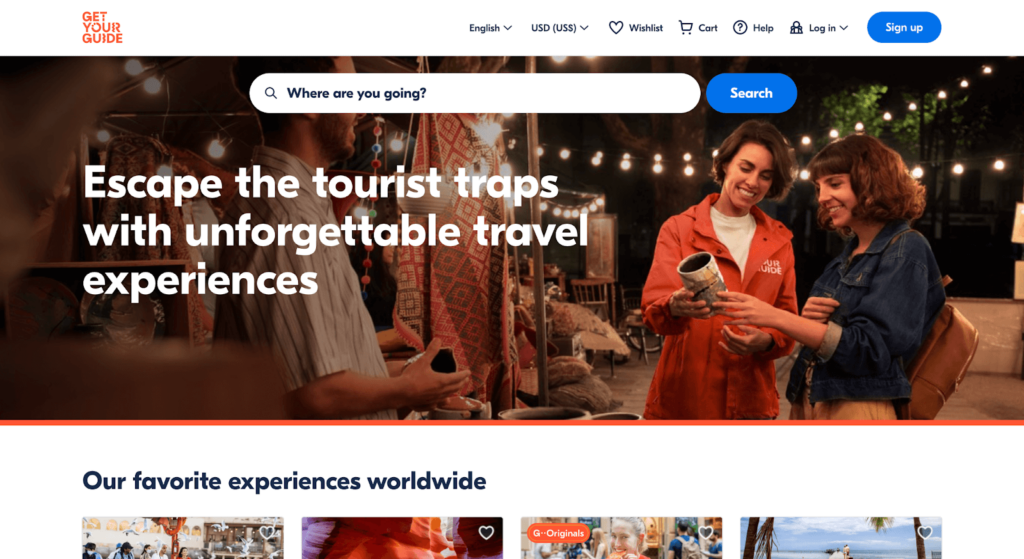
GetYourGuide launched in 2009 as an OTA specializing in travel activities and experiences. The platform sells tours, attraction tickets, city cards, cooking classes, transfers, multi-day tours, and special travel items like Wi-Fi sticks or experiences like wearing traditional costumes. The platform today has over 60,000 bookable activities.
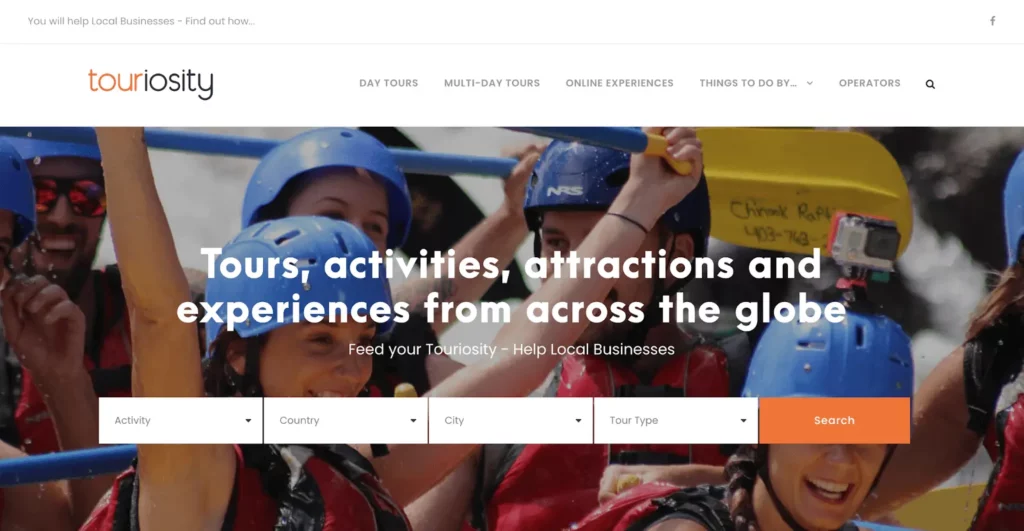
Touriosity is a Scottish nonprofit that takes zero commission from suppliers. Instead, it charges an upfront fee to list your offerings on the platform. The idea is to help suppliers grow their direct bookings while complimenting their own digital marketing efforts, according to the platform. To join, tour and attraction operators who want to join the project must have their business rated at least 4 stars on TripAdvisor, Google, and Facebook, and also register on the website.
Tripadvisor purchased Viator in 2014 to offer its users an easy way to book tours and activities. Today, Viator is one of the leading OTAs in the tours and attractions space, with more than 140,000 bookable activities. The website receives over 450 million unique monthly visitors through Tripadvisor’s expansive distribution network.
Klook is a travel experience booking platform based in Hong Kong. The website and app are popular with solo and independent travelers making their way through Mainland China, Hong Kong, Taiwan, Korea, and Southeast Asia. The OTA now has a growing audience in parts of Europe and the U.S., too.
Musement allows travelers to book local tours and attractions, including temporary, exclusive, hidden gem, and free activities. The company was founded in Milan in 2013 and has since expanded to 1,000 destinations in 80 countries.
Expedia is mostly known as a booking engine for hotels and flights, but it also sells tours and activities. The Expedia website has a “things to do” section where travelers can discover local experiences at their destination of choice. The Expedia Group owns several OTAs, including Expedia.com, Vrbo, Hotels.com, Hotwire.com, Orbitz, Travelocity, Trivago, and CarRentals.com.
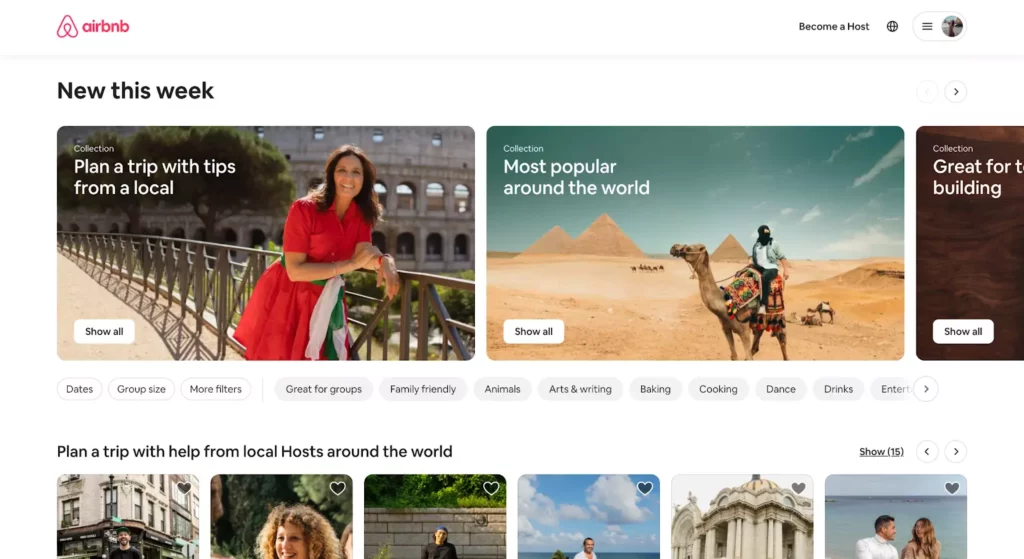
Airbnb is the leading marketplace for home-sharing and vacation rentals. The Airbnb website welcomes over 75 million website visitors every month. Many of these travelers are booking not only stays but also experiences. In 2016, Airbnb jumped into the tours and activities market with its signature tour brand called “Airbnb Experiences,” which included immersive tours and activities led by local hosts. The company also launched a slew of virtual experiences in response to the pandemic in 2020.
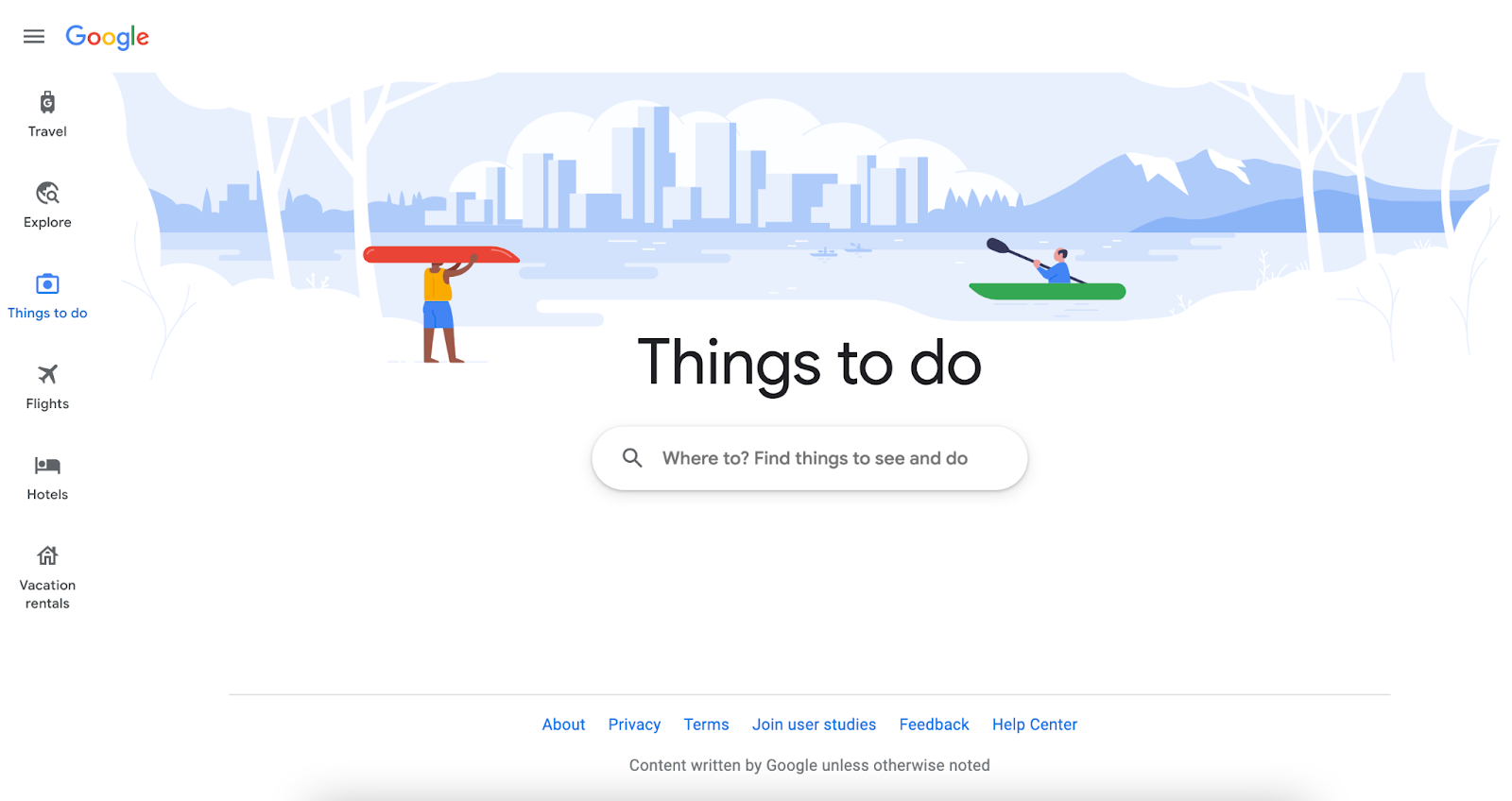
Google Things to do is a search experience that connects travelers to attractions, tours, and activities through their Google searches. When users search for a specific attraction, point of interest, or activity, they’ll be shown general information as well as booking links. They can book directly on the operator’s website or the various OTAs that sell the experience.
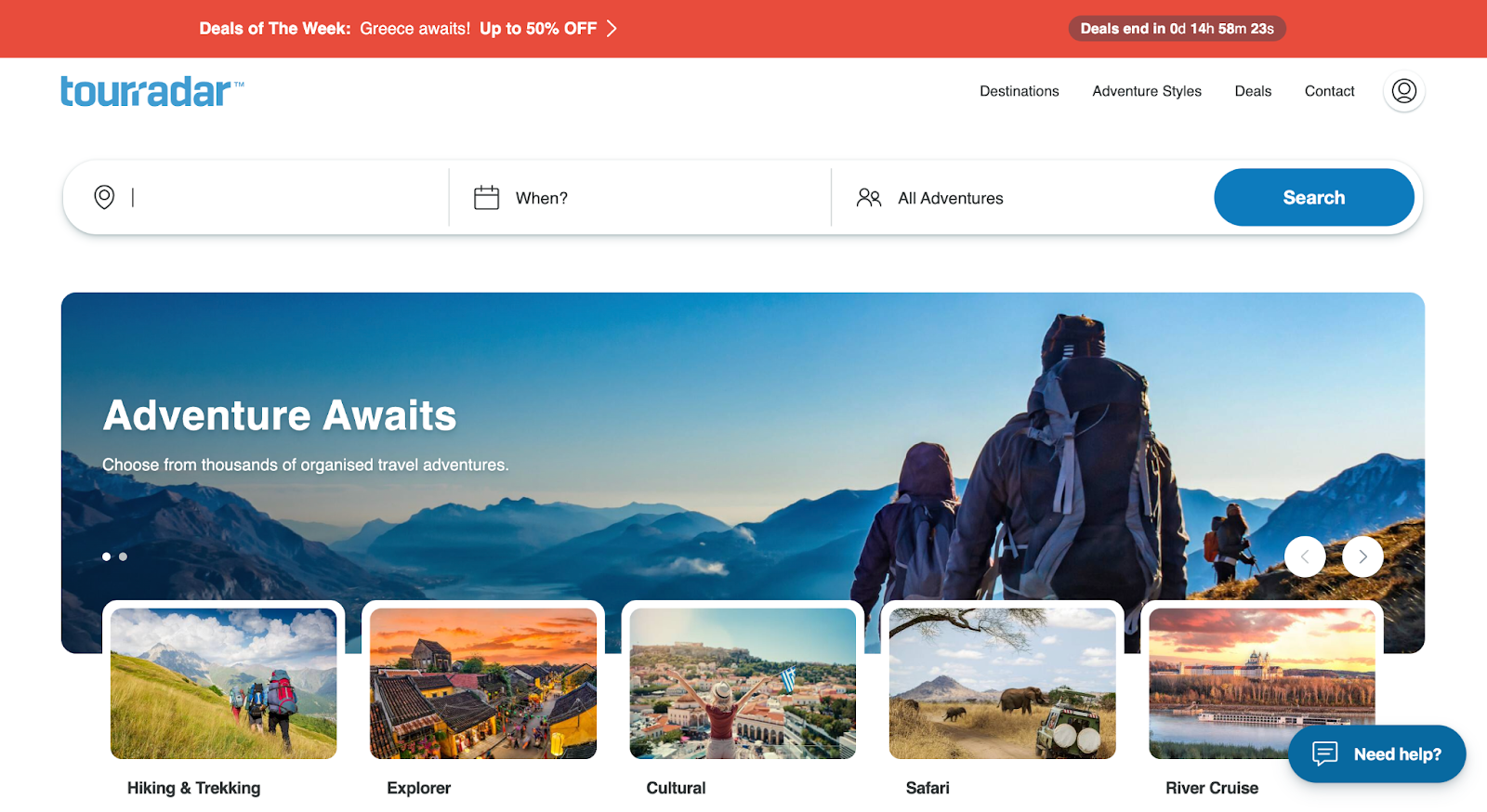
TourRadar is an OTA that focuses specifically on multi-day tours. The platform offers more than 50,000 tours in 160 countries around the world. TourRadar was founded in 2010 as one of the first OTAs to offer private and group tours that span multiple days.
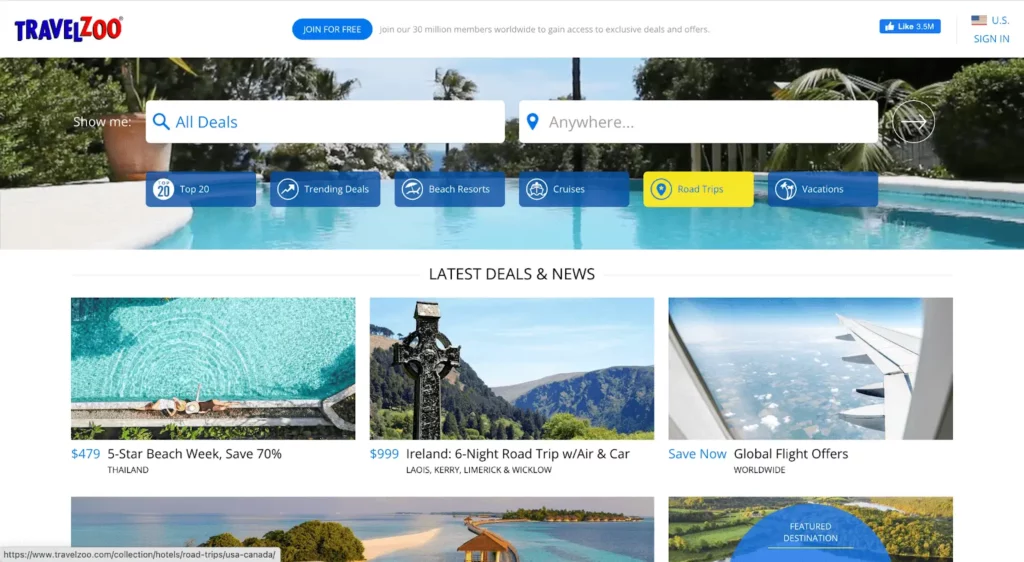
Travelzoo works with over 5,000 suppliers to offer travel, entertainment, and lifestyle experiences to over 6 million visitors every month. The platform also aggregates the best travel deals for hotels, flights, vacation packages, cruises.
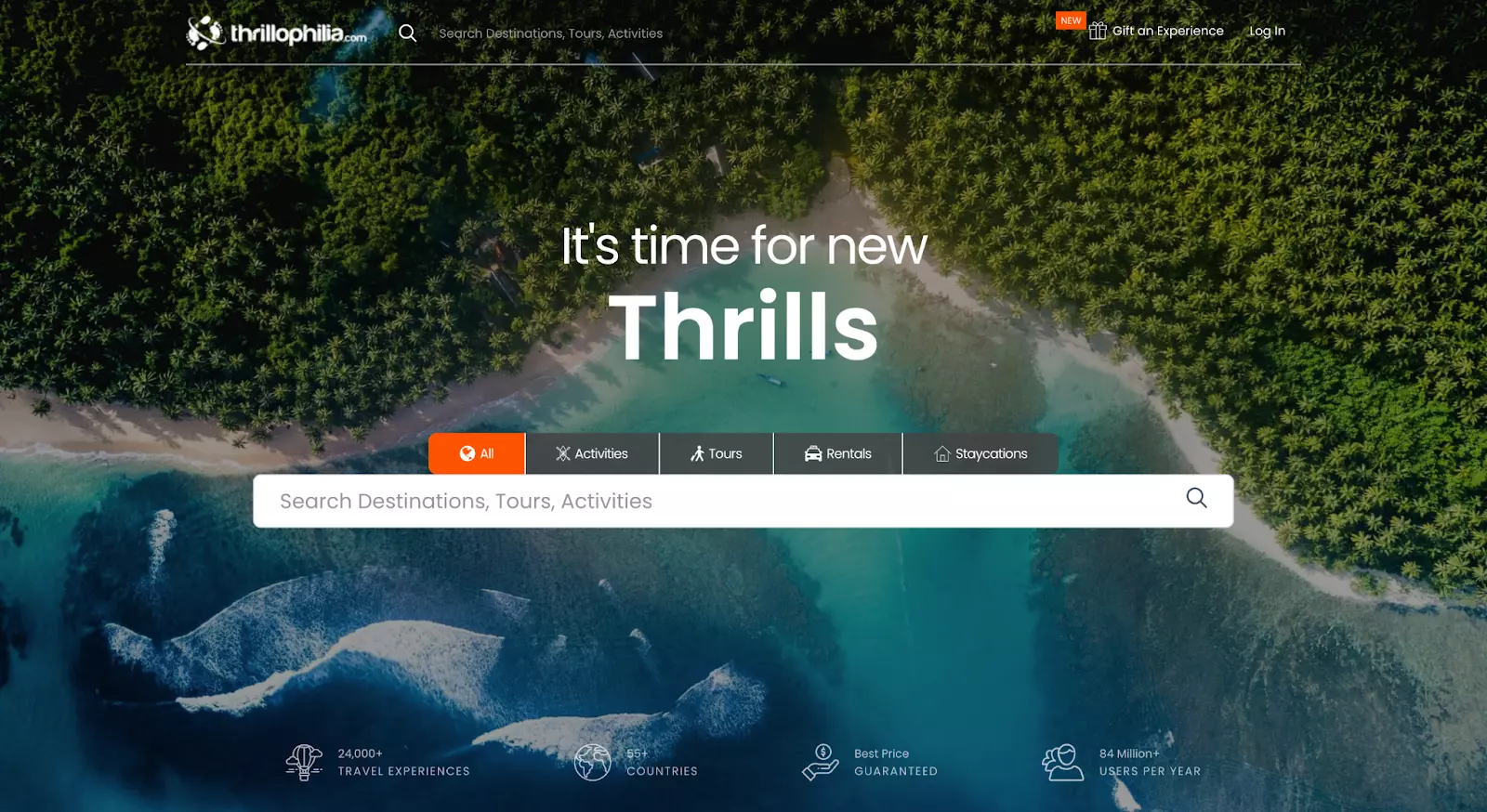
The Thrillophilia marketplace has over bookable 12,000 activities across 125 destinations. The company started with experiences in Bangalore, and today sells experiences in 15 Asian countries with Dubai, Thailand, Singapore, and Bali leading the charts after India. There are more than 5,000 suppliers selling tours and tickets on the platform.
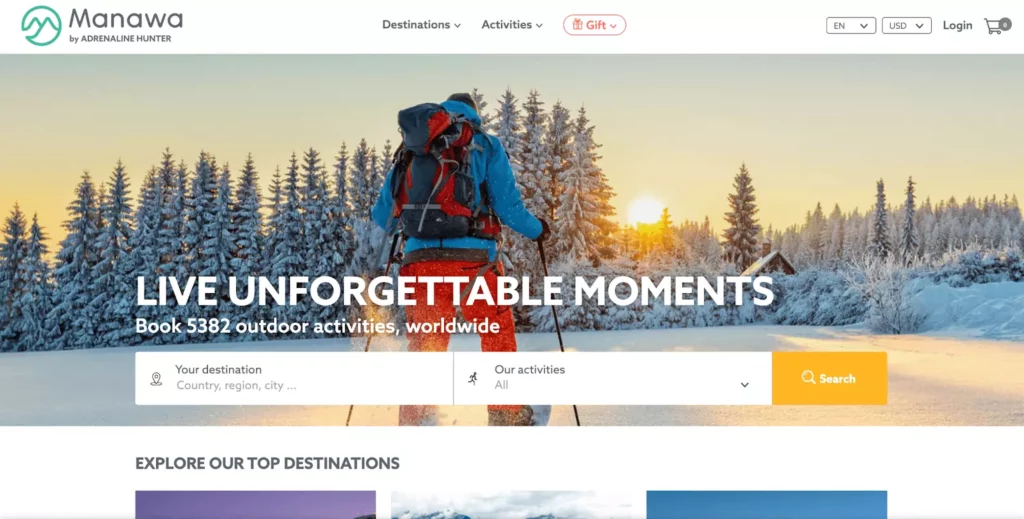
Manawa is a booking platform focused on outdoor activities like scuba diving, hiking, and helicopter tours. It currently has over 5,000 activities listed across 59 countries. Experiences are divided into six categories, including the “crazy” category where you’ll find crocodile diving, survival training, and other wildlife experiences.
Booking.com is the leading OTA in the hospitality industry. The company owns several big-name brands, including Booking.com, Priceline, Agoda, Rentalcars.com, KAYAK, and OpenTable. It also counts with a number of smaller OTAs like Rocketmiles, HotelsCombined, Cheapflights, and Momondo as part of its network.
Agoda is a popular OTA based in Singapore. The Agoda website offers hotels, vacation rentals, and flights in 39 different languages. It’s one of the many brands owned by Booking Holdings.
Trip.com is a full-service travel agency offering hotels, flights, cars, as well as tours and attraction tickets online. The website is owned by Trip.com Group, one of the largest OTAs in the world with over 400 million users worldwide. The Singapore-based company also owns Skyscanner.
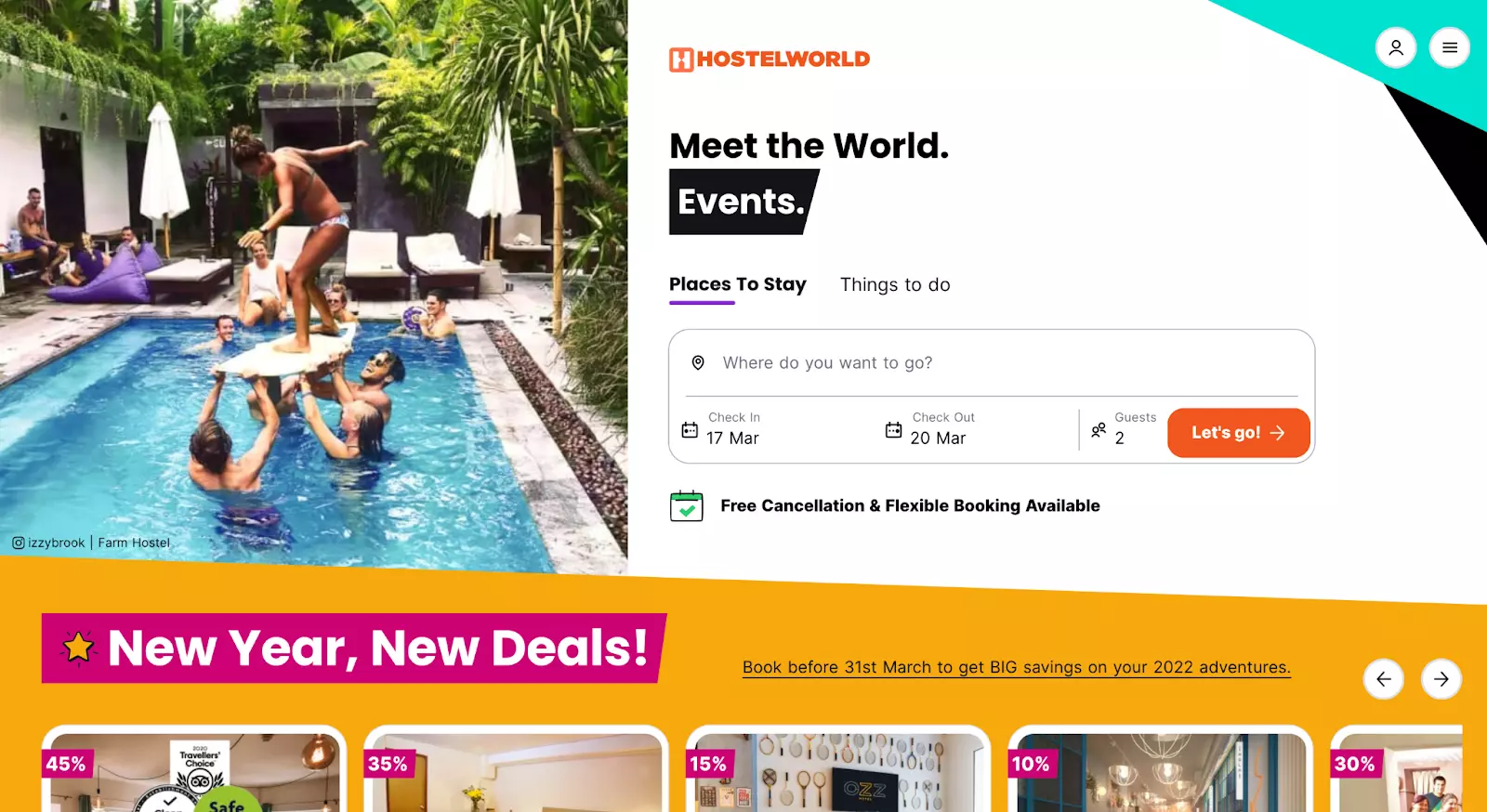
Hostelworld is the leasing OTA for hostel accommodations. The platform has more than 17,000 hostels listed across 179 countries. It has amassed over 13 million reviews since it was founded in 1999.
eDreams is a Barcelona, Spain-based OTA offering flights, hotels, car rentals, holiday packages, and travel insurance. The company currently operates in 40 countries, including Spain, Italy, France, Portugal, the UK, and the U.S. In 2011, eDreams became the first international OTA to expand into Turkey.
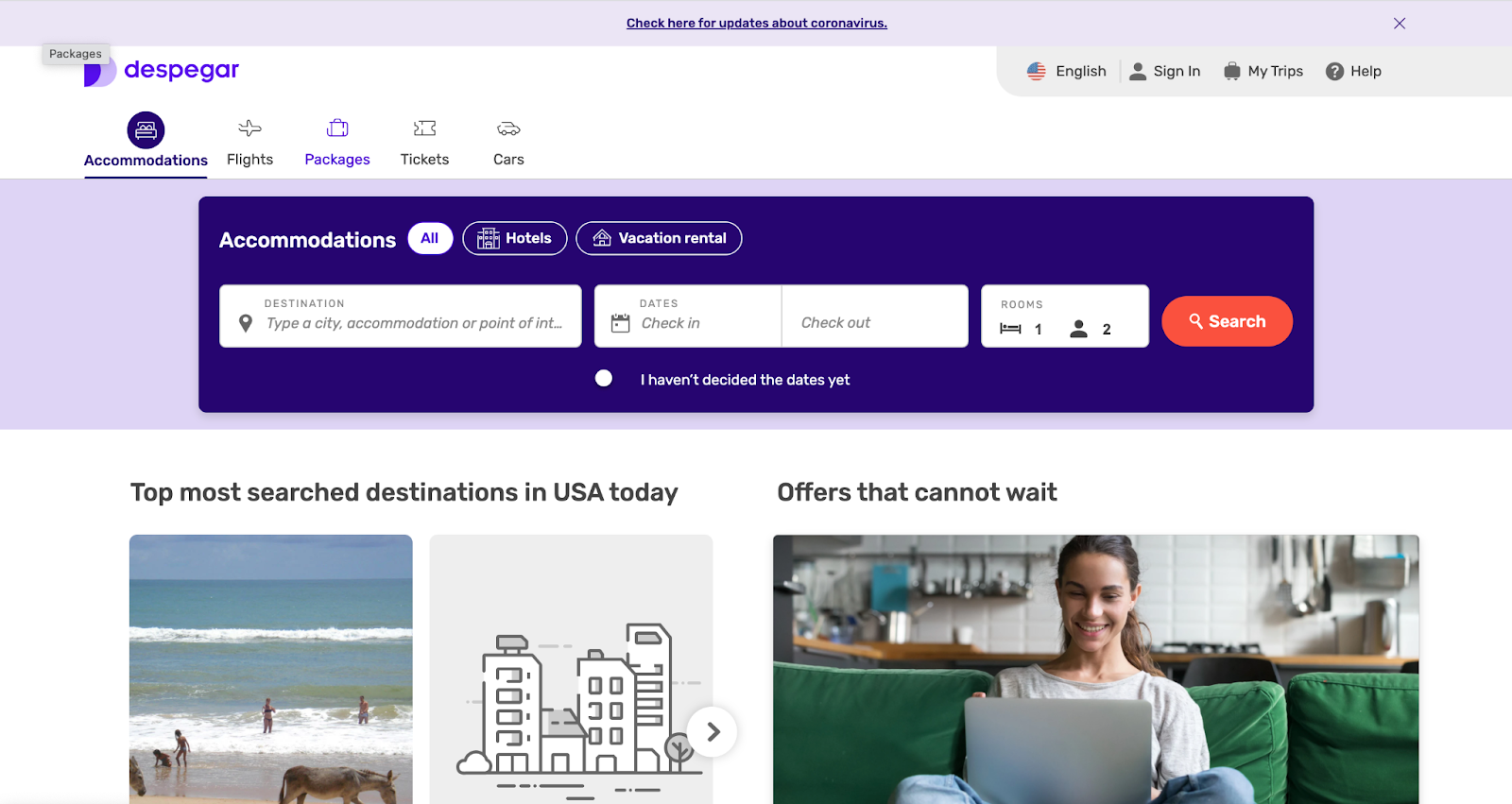
Despegar is the leading OTA in Latin America. The company owns two brands: The global brand Despegar and the Brazilian brand Decolar. The OTA offers airfare, hotel bookings, travel packages, and other travel products.
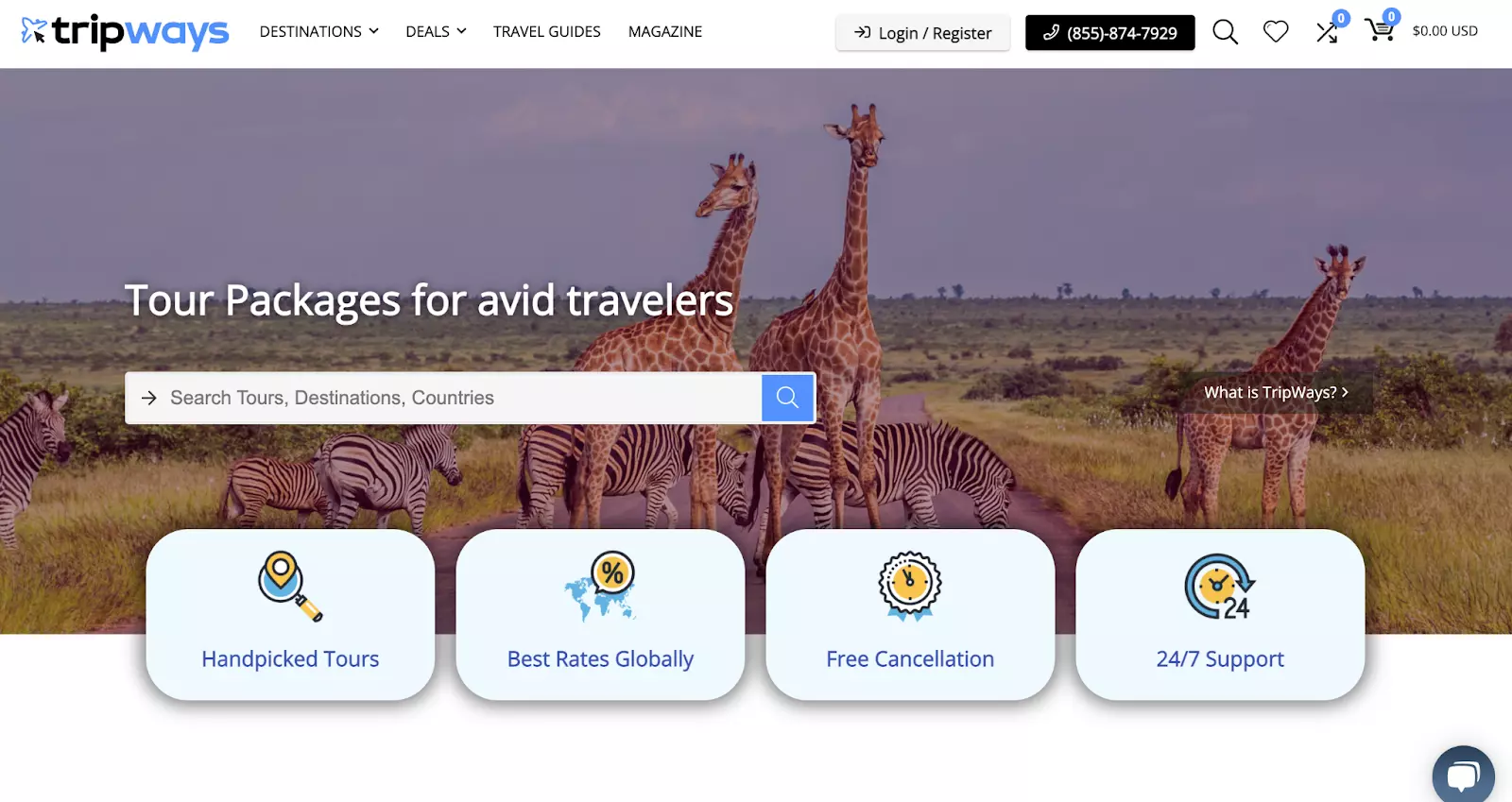
TripWays connects travelers to local tour companies and guides around the world. The OTA focuses on cheap flights, cheap hotels, tour packages, travel insurance policies, and visa services. It works with a limited number of tour operators for each destination, with a focus on multi-day and all-inclusive tours.
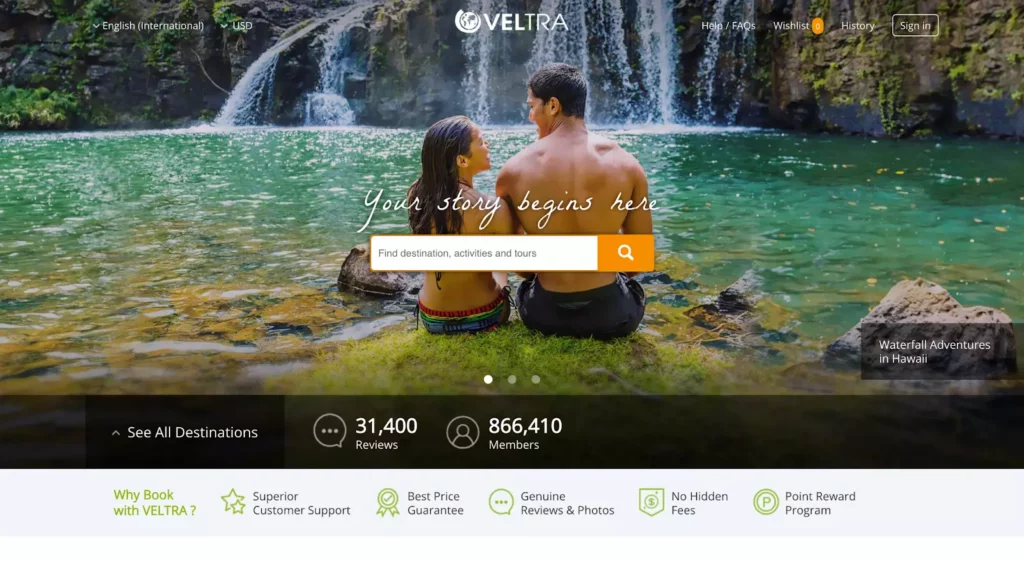
Veltra is Japan’s leading experience-focused OTA. It offers tours and activities across 150 countries. Founded in 1991, it was one of the first OTAs to offer bookable tours and activities online.
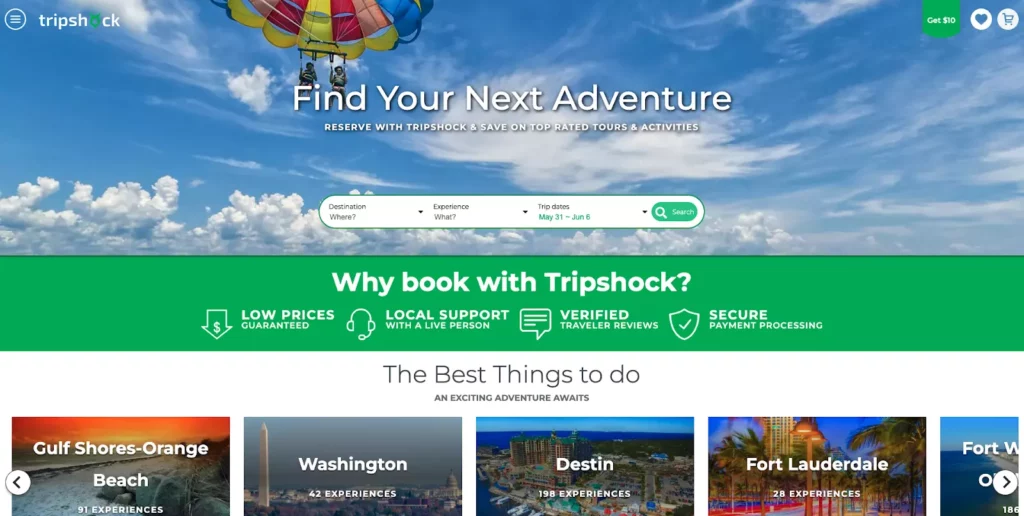
TripShock is a niche OTA focused on tourism excursions in and around the Gulf of Mexico and the Southeast. The Florida-based OTA offers activities in over 40 destinations spanning the region, including 1,000 tours, tourist attractions, and outdoor activities mostly suitable for individuals, couples, or families. The OTA was recently added to the many integratrations offered in Xola .
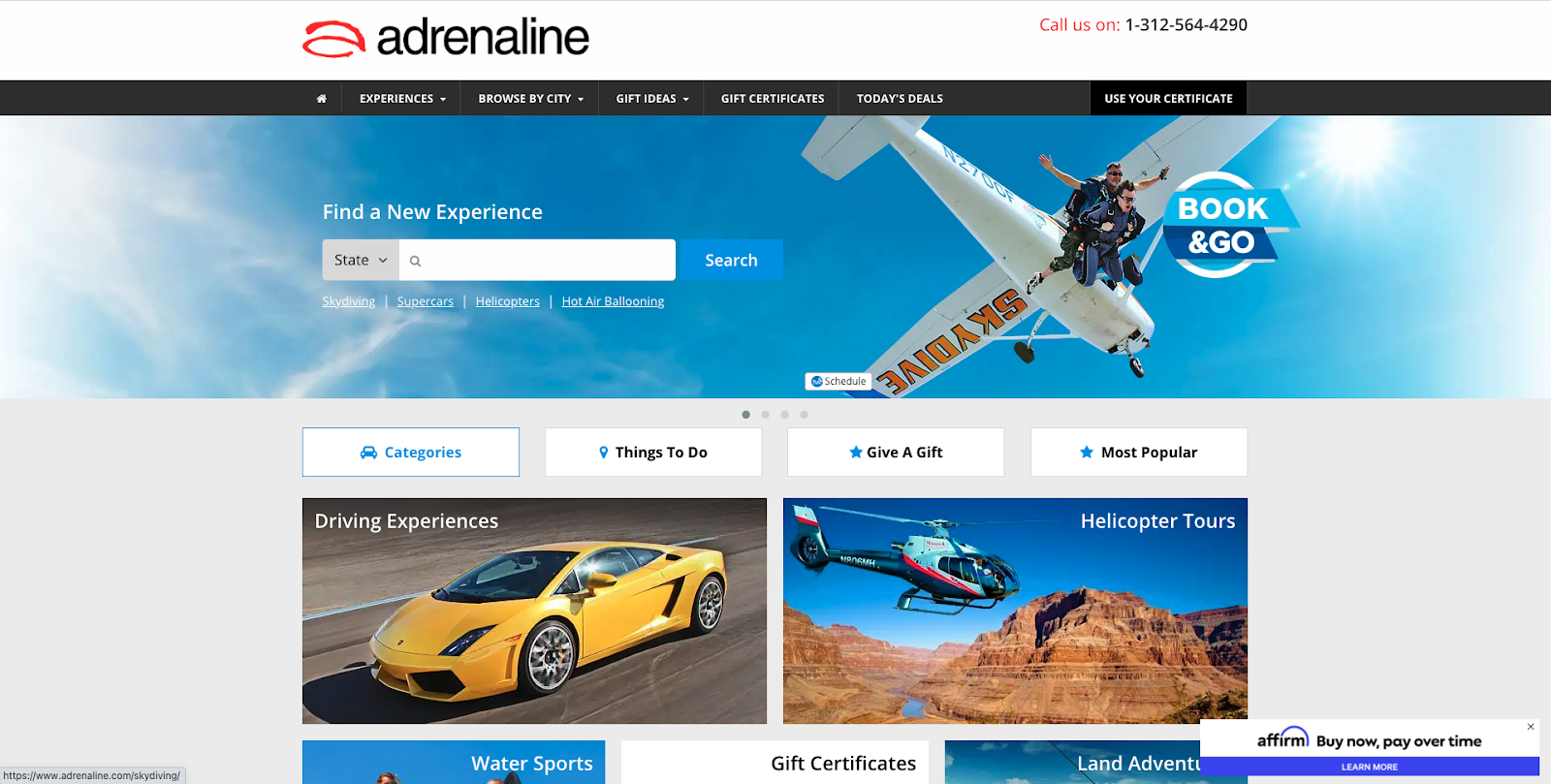
Adrenaline is an adventure-focused OTA offering 1,400 different travel excursions ranging from skydiving and helicopter tours to whitewarer rafting and zipline tours. It’s one of many OTAs that can be easily connected with Xola .
There are dozens of smaller OTAs on the market, but understanding how they work will help your business choose the best one.
It’s important to weigh the pros and cons of selling your experiences through an online marketplace — and try not to rely on them for all of your online bookings.
Writer Carla Vianna
Related Articles

You’ve likely considered the pros and cons of listing your tours with a third-party website. While your own tour website

6 examples of how tour operators can use AI to automate tasks
We know there’s a lot of buzz around Artificial Intelligence (AI), and you may not think there’s anything in it

How to find the best tour booking software for your company
Thousands of businesses rely on a comprehensive booking management tool to streamline operations and enhance customer experience every day. With
Get the latest news and resources.
For tours and attractions delivered straight to your inbox each week.
Transform your business now.

Exciting news! We've launched a new website for Expedia Group partners. As you explore this website, you may be redirected to the new experience to get the latest information. Check it out today !
Oops. It looks like your browser doesn't support JavaScript, which is keeping you from having the best experience on our site. No worries! You can fix it by going to the settings in your browser and enabling JavaScript.
Why do you need an Online Travel Agency (OTA)?
Working with an Online Travel Agency (OTA) not only helps you reach more travelers globally, it allows you to engage them when they’re researching, planning and booking their next trip. Discover how they work, what tools they offer and how to choose the right one for your business.

What is an OTA?
An online travel agency (OTA) is a web-based marketplace that allows consumers to research and book travel products and services, including hotels, flights, cars, tours, cruises, activities and more, directly with travel suppliers. Every day, millions of travelers around the world use OTAs to plan leisure and business travel.
OTAs provide access to your potential guests in locations and at volumes that would be difficult for you to access through your own marketing efforts. Additionally, OTAs provide market insights and tools for targeting travelers, securing and processing bookings, communicating with guests and managing reviews.
How do hotels work with OTAs?
Hotels of all sizes–including bed & breakfasts, inns and ryokans–sign contracts to list their properties on an OTA. There are no upfront fees to list rooms in the marketplace. OTAs make money only when rooms are booked, collecting a percentage of the total value of each secured reservation.
The OTA provides opportunities to showcase rooms and properties through amenity descriptions, photos, nearby points of interests and more. Listings are displayed to travelers searching for places to stay in your destination. If they use filters to narrow their search—e.g. only looking for pools, free Wi-Fi, or air conditioning—the OTA will align travel criteria with the detail provided by the hotel, displaying the properties that match best.
The OTA provides a secure booking platform and is the traveler’s main point of contact for booking amendments and cancellations. At no cost, OTAs provide a variety of tools —from real-time access to market data to tools for managing reviews—to help their partners be successful.
Why work with an Online Travel Agency (OTA)?
OTAs are increasingly popular. In fact, travelers today use OTAs 50% more than hotel websites to compare leisure travel options. And that means OTAs can play an important part in your distribution strategy.
Here’s why hotels like yours are choosing to use OTAs.
Online marketing investments you don’t have to make
Every year OTAs spend millions of dollars attracting consumers from around the world to their online travel marketplaces. Their investment in on online and tv advertising, billboards and sponsorships, social media and other marketing channels helps hotels to engage hard-to-reach travelers they couldn’t afford to reach otherwise. OTAs give you a low risk opportunity to grow your business, especially if you have limited marketing funds.
Greater visibility for your own website
Evidence shows that being listed on an OTA can bring more traffic to your property’s own website, because consumers often use OTAs for their search before booking directly. This is known as “ The Billboard Effect ”.
A 2011 study which looked at consumers’ online pre-purchase behavior found that around 75% of people who made direct reservations with a major hotel brand had visited an OTA website before booking directly with the hotel. Another report in 2017 showed that the “Billboard Effect” still occurs, as many people still visit an OTA prior to booking direct.
Increased ability to target high-value guests
Through their listing tools and marketing programs, many OTAs can help hotels target guests who will be delighted with their stay and drive profitable growth. Possibilities range from packaging rooms with flights to attract guests who tend to cancel less, to targeting business travelers, budget or luxury guests, families or those from specific regions. Marketing programs can help you achieve specific business goals, including maintaining high average daily rates (ADRs) , driving longer stays to reduce costs or capture last-minute bookings. Best of all, when you attract the right guests for your property, you increase the likelihood of positive, glowing reviews.
Access to rich tools, analytics and insights
OTAs give you free access to market data , competitive insights, traveler preferences and tools that otherwise can be costly to acquire on your own. Most will offer easy-to-use analytics to help you better understand your year-over-year performance and how you compare to like properties in your market. Based on their data and the booking trends in their marketplace, they may make suggestions to help you improve your results and offer tips and resources to support your decision making.
Dedicated support teams
Many OTAs support their partners’ success through regionally based account teams. These individuals have extensive market knowledge, can share insight on regional trends and advise on tactics that will help drive business success. When partners have issues or concerns, support teams and help content is available. Additionally, most OTAs provide travelers with service when they experience challenges before, during and after a trip.
What should you consider when choosing an Online Travel Agency (OTA)?
There are many OTAs to choose from, and they come in all shapes and sizes, from large, global OTAs to local and niche-interest ones. Here’s what to consider when comparing OTA options.
Who is their audience?
Many OTAs target specific audiences. Think about the region and segment you want to target and whether an OTA caters to this audience. For example, if you own a small B&B mainly catering to families, you would want to avoid signing up with an OTA which mainly targets business travelers.
You can find out more about an OTA’s target audience by looking at the properties listed on their website, or by simply asking a representative at the OTA before signing up .
What is the user experience for guests?
Take a look at their traveler-facing websites (such as expedia.com) and get a feel for what the searching, browsing and booking experience is like for your potential guests.
If you find the experience difficult or frustrating, it’s likely other travelers will too. Frustrated travelers are likely to look elsewhere to make their bookings.
What features do they offer to partners?
Every OTA has a different set of tools and analytics to help with revenue management, pricing decisions, and promotion of your property. Some larger OTAs have whole teams dedicated to creating these tools, so it is worth assessing which OTAs offer the most useful tools for you.
Another important thing to consider is whether an OTA integrates with your channel manager . This integration will be important to your distribution strategy , helping smooth management of bookings and eliminating the risk of overbooking errors.
Once you’ve considered all these options and found the perfect OTA, it’s time to sign up !

Meet Expedia Group

Prague hotel enjoys growth in a saturated market
Surrounded by 4 and 5-star competitors in the city’s old town, this historic hotel uses real-time pricing data and package promotions to grow steadily.

Discover Partner Central

What Does OTA Stand For in Travel? (The Ultimate Guide)
Ota Stands for “Online Travel Agency”
When you’re planning a trip, you have a lot of options to choose from. You can book your flights, hotels, and other travel arrangements directly with the providers, or you can use an online travel agency (OTA).
OTAs are third-party websites that aggregate travel deals from multiple providers. This makes it easy for you to compare prices and find the best deals on flights, hotels, rental cars, and other travel services.
OTAs can also be a great source of information and advice. They often have travel experts who can help you plan your trip and answer any questions you have.
In this article, we’ll take a closer look at OTAs. We’ll discuss what they are, how they work, and what the benefits and drawbacks of using them are. We’ll also provide some tips on how to find the best deals on travel through an OTA.
So if you’re planning a trip, be sure to read on to learn more about OTAs and how they can help you save money and make your trip more enjoyable.
“`html
What is OTA?
OTA stands for online travel agency. OTAs are websites that allow travelers to book flights, hotels, and other travel-related services. OTAs are not travel agents, but they do work with travel agents to provide their services.
Definition of OTA
An OTA is a website that allows travelers to book flights, hotels, and other travel-related services. OTAs are not travel agents, but they do work with travel agents to provide their services. OTAs typically offer a wider range of travel options than travel agents, and they may be able to offer lower prices.
History of OTAs
The first OTA was established in 1950. The company, called TravLodge, offered travelers a way to book hotel rooms online. In the early days of OTAs, travelers were hesitant to use these services because they were not familiar with them. However, as OTAs became more popular, travelers began to trust them and use them to book their travel arrangements.
Today, OTAs are a major part of the travel industry. They account for a significant percentage of all travel bookings. OTAs offer a convenient and affordable way for travelers to book their travel arrangements.
Types of OTAs
There are many different types of OTAs. Some of the most popular types of OTAs include:
- General OTAs . These OTAs offer a wide range of travel options, including flights, hotels, car rentals, and tours. Some of the most popular general OTAs include Expedia, Orbitz, and Travelocity.
- Specialty OTAs . These OTAs focus on a specific type of travel, such as cruises, tours, or vacation rentals. Some of the most popular specialty OTAs include CruiseDirect, Booking.com, and Airbnb.
- Metasearch engines . These OTAs aggregate the results of multiple OTAs into one place. This makes it easy for travelers to compare prices and find the best deals. Some of the most popular metasearch engines include Kayak, Google Flights, and Skyscanner.
How do OTAs work?
OTAs work by connecting travelers with travel providers. When a traveler books a travel arrangement through an OTA, the OTA sends the traveler’s information to the travel provider. The travel provider then confirms the booking and sends the traveler a confirmation email.
OTAs typically charge a commission to the travel provider for each booking that they make. The commission is a percentage of the total cost of the booking. OTAs use this commission to cover their operating costs and make a profit.
The process of booking a travel through an OTA
Booking a travel through an OTA is a simple process. Here are the steps involved:
1. Choose an OTA. There are many different OTAs to choose from. Consider the type of travel you are looking for, your budget, and your preferred features when choosing an OTA. 2. Find a travel deal. Once you have chosen an OTA, you can start searching for travel deals. You can filter your search by destination, dates, and other factors. 3. Book your travel. When you find a deal that you like, you can book your travel. You will need to provide your personal information and payment details. 4. Receive your confirmation. Once you have booked your travel, you will receive a confirmation email. This email will include all of the details of your booking.
The benefits of using an OTA
There are many benefits to using an OTA when booking your travel. Some of the benefits include:
- Convenience . OTAs make it easy to book your travel arrangements. You can search for deals, compare prices, and book your travel all in one place.
- Affordability . OTAs often offer lower prices than travel agents. This is because OTAs do not have the same overhead costs as travel agents.
- Choice . OTAs offer a wide range of travel options. You can find flights, hotels, car rentals, and tours from a variety of providers.
- Flexibility . OTAs typically offer flexible booking policies. This means that you can change or cancel your booking without incurring a fee.
The drawbacks of using an OTA
There are some drawbacks to using an OTA when booking your travel. Some of the drawbacks include:
- Hidden fees . OTAs may charge hidden fees, such as cancellation fees or change fees. Be sure to read the fine print before you book your travel.
- Less personalized service . OTAs typically offer less personalized service than
What Does OTA Stand for in Travel?
OTA stands for online travel agency. OTAs are websites that allow travelers to book flights, hotels, and other travel-related services online. OTAs are a convenient way for travelers to compare prices and book their travel arrangements, and they offer a wide range of options to choose from.
OTAs have become increasingly popular in recent years, as more and more people are booking their travel online. In 2023, the global online travel market is expected to be worth \$935 billion.
The impact of OTAs on the travel industry
OTAs have had a significant impact on the travel industry. They have made it easier for travelers to book their travel arrangements, and they have helped to drive down prices. OTAs have also made it possible for travelers to book their travel arrangements from anywhere in the world, at any time of day or night.
However, OTAs have also had some negative impacts on the travel industry. They have put pressure on traditional travel agents, who have seen their business decline in recent years. OTAs have also been accused of driving up prices, as they take a commission on every booking that they make.
The positive impact of OTAs
OTAs have had a number of positive impacts on the travel industry. They have made it easier for travelers to book their travel arrangements, and they have helped to drive down prices. OTAs have also made it possible for travelers to book their travel arrangements from anywhere in the world, at any time of day or night.
Here are some of the specific benefits of OTAs for travelers:
- Convenience: OTAs make it easy for travelers to compare prices and book their travel arrangements. They offer a wide range of options to choose from, and they allow travelers to book their travel arrangements quickly and easily.
- Affordability: OTAs can help travelers to save money on their travel arrangements. They often offer discounts on flights, hotels, and other travel-related services.
- Accessibility: OTAs make it possible for travelers to book their travel arrangements from anywhere in the world, at any time of day or night. This is especially beneficial for travelers who are on the go or who have busy schedules.
The negative impact of OTAs
OTAs have also had some negative impacts on the travel industry. They have put pressure on traditional travel agents, who have seen their business decline in recent years. OTAs have also been accused of driving up prices, as they take a commission on every booking that they make.
Here are some of the specific challenges facing OTAs:
- Competition: OTAs face a lot of competition from other OTAs, as well as from traditional travel agents and online booking engines. This can make it difficult for OTAs to maintain their margins and stay profitable.
- Regulation: OTAs are subject to a variety of regulations, which can make it difficult for them to operate efficiently. These regulations include laws on consumer protection, data privacy, and anti-trust.
- Technology: OTAs need to constantly invest in new technology in order to stay ahead of the competition. This can be expensive and time-consuming.
The future of OTAs
The future of OTAs is uncertain. There are a number of challenges facing OTAs, but there are also a number of opportunities.
Here are some of the factors that are likely to impact the future of OTAs:
- The growth of mobile travel: More and more people are booking their travel arrangements using mobile devices. This trend is likely to continue, as more people have access to mobile devices and as mobile technology improves.
- The rise of social media: Social media is becoming increasingly important for travel planning. Travelers are using social media to research destinations, compare prices, and book their travel arrangements.
- The development of new technologies: New technologies, such as artificial intelligence and machine learning, are likely to have a significant impact on the travel industry. These technologies could make it easier for OTAs to personalize their offerings and provide travelers with a more seamless travel experience.
Overall, the future of OTAs is likely to be shaped by a number of factors, including the growth of mobile travel, the rise of social media, and the development of new technologies. OTAs that are able to adapt to these changes are likely to be successful in the future.
OTAs have had a significant impact on the travel industry. They have made it easier for travelers to book their travel arrangements, and they have helped to drive down prices. However, OTAs have also put pressure on traditional travel agents and have been accused of driving up prices
What does OTA stand for in travel?
OTA stands for online travel agency. OTAs are third-party websites that allow travelers to book flights, hotels, and other travel-related services. OTAs typically offer a wider range of options than traditional travel agents, and they often have lower prices. However, it’s important to note that OTAs are not always the best option, as they may not offer the same level of customer service as a traditional travel agent.
What are the benefits of using an OTA?
There are several benefits to using an OTA, including:
- Wide range of options: OTAs offer a wide range of flights, hotels, and other travel-related services, so you’re more likely to find the perfect option for your needs.
- Lower prices: OTAs often have lower prices than traditional travel agents.
- Convenience: OTAs make it easy to book travel online, and you can often do so 24/7.
What are the drawbacks of using an OTA?
There are a few drawbacks to using an OTA, including:
- Less customer service: OTAs typically offer less customer service than traditional travel agents.
- Hidden fees: OTAs may charge hidden fees, such as booking fees or cancellation fees.
- Unclear policies: OTAs may have unclear policies, which can make it difficult to know what you’re entitled to if something goes wrong.
How do I choose the right OTA?
When choosing an OTA, there are a few things you should consider, including:
- Your budget: OTAs offer a wide range of prices, so you should choose one that fits your budget.
- Your needs: Consider what kind of travel you’re planning and what kind of options you’re looking for.
- Your customer service preferences: If you’re someone who values customer service, you may want to choose an OTA that offers a strong customer service reputation.
What are some popular OTAs?
Some of the most popular OTAs include:
- Booking.com
- Travelocity
- Google Flights
Is it safe to book travel through an OTA?
Yes, it is generally safe to book travel through an OTA. However, it’s important to read the terms and conditions carefully before you book, so you know what you’re entitled to if something goes wrong.
What are some tips for using an OTA?
Here are a few tips for using an OTA:
- Compare prices: Be sure to compare prices from multiple OTAs before you book.
- Read the terms and conditions: Read the terms and conditions carefully before you book, so you know what you’re entitled to if something goes wrong.
Here are some key takeaways from this article:
- OTAs are a convenient way to book travel, but it’s important to be aware of the fees they charge and the terms and conditions of their services.
- OTAs typically charge a commission on each booking, which can add up to a significant amount of money.
- Some OTAs may also charge hidden fees, such as cancellation fees or baggage fees.
- It’s important to read the terms and conditions of an OTA’s services carefully before you book a trip.
- By doing your research, you can find the best OTA for your needs and save money on your next trip.
Author Profile

Latest entries
- January 19, 2024 Hiking How to Lace Hiking Boots for a Perfect Fit
- January 19, 2024 Camping How to Dispose of Camping Propane Tanks the Right Way
- January 19, 2024 Traveling Information Is Buffalo Still Under Travel Ban? (Updated for 2023)
- January 19, 2024 Cruise/Cruising Which Carnival Cruise Is Best for Families?
- Online Booking
- Travel Services
- Global Content & NDC
- Policy Management
- Traveler Safety
- Sustainability
- Real-time Analytics
- Carbon Removal
- Traveler Experience
- Travel Cost Savings
- Global Platform
- Integrations
- Expense Management Providers
- Financial Services Providers
- Technology Providers
- Travel Suppliers
- Travel Management Companies
- White Labeling
- Partner Success Model
- Platform Overview
- API Documentation
- Security and Trust
- Case Studies
- Resource Library

What Is an OTA (Online Travel Agency)?

Online travel agencies (OTAs) are a popular way for business and leisure travelers to book flights, hotels, and rental cars.
While OTAs offer convenience, they lack the comprehensive features that make it easy for businesses to manage their travel budgets and provide service to business travelers.
That’s why many companies turn to dedicated corporate travel management companies (TMCs) and online booking tools (OBTs) instead of using an OTA for business travel.
For travel managers, it’s important to be aware of and understand the benefits and shortcomings of using an OTA for business travel. Here’s everything you need to know about OTAs and why your business travel program will benefit from a dedicated corporate travel platform.
What is an OTA?
An online travel agency is a website where travelers can book flights, hotels, rental cars, cruises, tours, vacation packages, short term rentals, and more.
The first OTAs launched in 1996: Travelocity , which stemmed from a partnership between American Airlines and Sabre, and Expedia , which was created from a partnership between Microsoft and Boston Consulting Group.
These companies brought self-service travel booking to the Web for the first time at scale. Before then travel had to be booked through brick-and-mortar travel agents or directly with suppliers. There were outliers, like the eAAsySabre tool in the late 1980s and the web-based Hotel Reservations Network in 1995, but OTAs were the first to bring together multiple types of travel products in one full-service shopping environment.
These early OTAs were primarily focused on providing a simple and convenient way for consumers to book flights and hotels. However, their offerings were limited compared to what is available today. Popular sites like Priceline , Agoda , and Trip.com followed afterwards.
OTAs generally have two main business models : the merchant model, where a site acts as the merchant of record and sends payment to a supplier after a trip minus its commission, and the agency model, where suppliers are paid directly and send a commission back to the OTA for bookings.
In the late 1990s and early 2000s, the popularity of OTAs began to grow rapidly as more and more consumers began to embrace the internet as a way to book travel. This growth was driven by several factors, including the increasing availability of high-speed internet, the growing number of travel options available online, and the increasing number of consumers who were comfortable making online purchases.
As OTAs grew more popular, these companies began to expand their offerings to include a wider range of travel products and services. Rental cars, vacation packages, and travel insurance were added. Many OTAs also began to invest heavily in their websites and mobile apps, making it even easier for consumers to book travel from anywhere, at any time.
Today, OTAs are an integral part of the travel industry and are responsible for a significant portion of all travel bookings made online.
What are OTA’s best features?
Ota shopping experience.
Online travel agencies provide a good shopping experience to leisure travelers by offering a wide range of travel options in one place. This allows them to quickly compare prices, read reviews, and view photos of different hotels, flights, and rental cars, making it easy to find the best option for their needs.
Additionally, many OTAs offer recommendations, which can help travelers discover new and exciting destinations, activities, and accommodations they may not have considered before.
The process is secure and fast, giving travelers the peace of mind that their booking is confirmed, and providing them with all the necessary information to begin their trip.
Choice of travel options
Online travel agencies offer leisure travelers a wide range of options when considering a vacation.
Many online booking tools provide discounts on packages and bundles as well as reviews from other travelers so that people can make an informed decision about their trip.
OTA travel inspiration
Travelers often find inspiration when researching travel using an online travel agency by browsing through a wide range of options, including destinations, accommodations, and activities. They can read reviews from other travelers, view photos, and compare prices to help them make an informed decision.
Traveler Reviews
It’s rare for travelers to book a trip without reading reviews. Travelers can turn to online travel agencies for verified reviews of hotels, vacations, and other types of travel experiences.
Reading reviews on OTA websites helps travelers feel reassured that they’re making a good choice about the quality of accommodations and services offered at each destination.
Areas where business travel platforms are better than OTAs
Cost savings.
A benefit of using a corporate booking tool instead of an online travel agency is cost savings.
Corporate booking tools can save businesses significant amounts of money by providing access to corporate rates, negotiating discounts from suppliers, and managing group bookings.
Additionally, many corporate booking tools provide customers with tailored reporting so that businesses can easily track expenses and ensure they are getting the best deal for their travel needs.
Policies and travel inventory
Modern corporate travel platforms like Spotnana provide access to travel options from OTAs like Expedia and Booking.com in addition to a wide array of global content. This means that employees can still access the same deals and offers that they would find on an OTA, but they can do so within the context of the organization’s travel policy. This can help to ensure that all travel is compliant with company guidelines and can help to control costs by presenting preferred and negotiated rates.
At the same time, having comprehensive travel inventory options in one place makes it easier for employees to find and book the right travel arrangements for their needs.
Using a modern corporate travel platform like Spotnana helps streamline the travel booking process . This is particularly beneficial for organizations with many travelers. This can save time and resources, and can help to ensure that all travel is booked in a timely and efficient manner.
When businesses choose to use a corporate booking tool instead of an online travel agency, they benefit from the added level of service that comes along with it.
Corporate online booking tools and travel management companies provide comprehensive support to travelers and businesses with complex itineraries and needs, such as managing large groups or negotiating corporate rates. They also offer timely support from experienced travel agents with shorter wait times and personalized service across the phone, email, and chat.
Using a corporate travel platform instead of an OTA can save businesses significant amounts of time and effort.
Reporting and analytics
If business travelers book across a variety of consumer sites, it’s impossible for travel managers and finance professionals to have a full understanding of travel spending and traveler behavior in real time.
Business travel platforms like Spotnana offer real-time reporting features, allowing organizations to easily track and analyze all aspects of their corporate travel program . This includes everything from flight and hotel bookings, expenses, and employee behavior, to travel policies and more. This level of detail and customization makes it easier to identify areas for cost savings and to optimize the travel program for maximum efficiency and savings.
Business travel platforms also integrate with other systems used by the organization, such as expense management and accounting systems. This integration eliminates manual data entry, reducing the risk of errors and ensuring that all data is up-to-date and accurate. A modern business travel platform provides a single source of truth for all travel data, making it easier to analyze and make informed decisions.
Security and duty of care
Businesses also benefit from added security when using a corporate booking tool instead of an online travel agency. Corporate booking tools provide businesses with additional layers of security by verifying the identity of travelers, ensuring that they remain compliant with company policies, and providing access to real-time updates on flight statuses and other important travel information.
Spotnana offers safety tools including a Live Map that shows the location and status of every traveler in your program.
What is an OTA versus an OBT?
Businesses that choose to use a corporate booking tool instead of an online travel agency can benefit from cost savings, better service, and a streamlined booking processes.
Additionally, modern corporate travel platforms include inventory provided by online travel agencies, making it easy to get a wide variety of travel options with better visibility and control over travel spend. Corporate online booking tools can help ensure that all travel is compliant with company policies and within budget, making it a valuable asset for any organization looking to maximize the efficiency and efficacy of their travel program.
Want to learn more about how you can transform your travel program? Get a demo of Spotnana today.
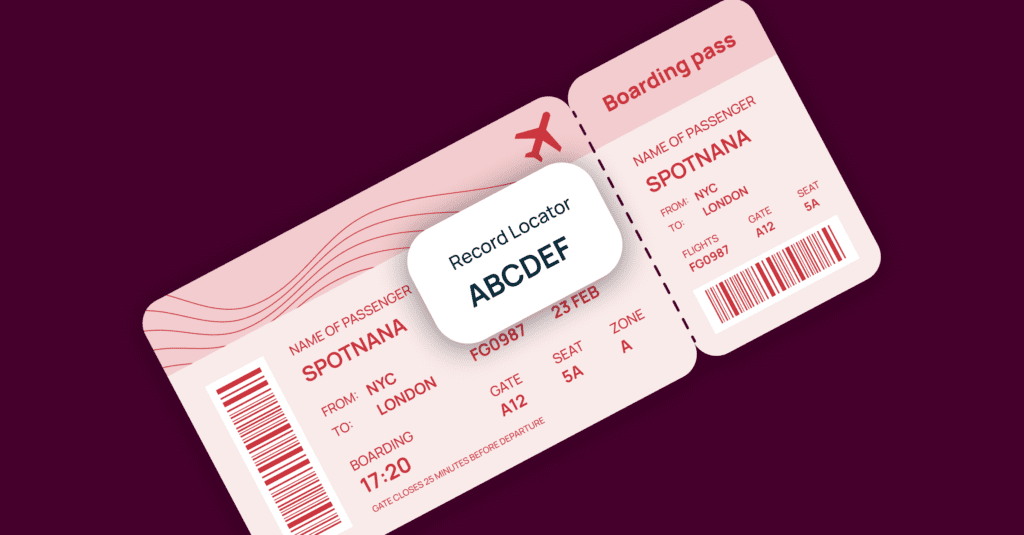

The Leading Source of Insights On Business Model Strategy & Tech Business Models
Online Travel Agencies (OTAs) And Their Business Models
Table of Contents

Google (Google Travel)

Tripadvisor

Key highlights of the business models from travel and accommodation platforms:
- Platform business model charging guests a service fee (5% to 15%) and hosts a commission (generally 3%) on reservations.
- Competes with other vacation rental platforms like Booking.com, VRBO, and FlipKey, as well as potential competition from Google Travel.
- Operates under Booking Holdings, controlling six main brands like Booking.com, priceline.com, KAYAK, agoda.com, Rentalcars.com, and OpenTable.
- Generates revenues primarily through travel reservations commissions, travel insurance fees, and advertising via KAYAK.
- Expedia (including Trivago):
- Trivago, part of Expedia Group, is a hotel comparison service monetized through a cost-per-click (CPC) model from advertiser listings.
- Expedia also owns other online travel agencies like Hotels.com, Vrbo, Orbits, CheapTickets, Travelocity, among others.
- Google (Google Travel):
- Originally part of Microsoft and later spun off, Google Travel provides travel-related information and services.
- Google Travel’s exact revenue model is not mentioned, but it likely generates income through advertising and possibly affiliate marketing .
- Online travel agency and search engine, acquired by Booking Holdings in 2013.
- Earns revenue through an advertising model based on cost per click, cost per acquisition, and advertising placements.
- An online restaurant reservation system acquired by Booking Holding in 2014.
- Generates income through subscription plans, referral fees, and potentially in-dining revenue .
- Utilizes a mixed business model , starting as a home aggregator in India and expanding into other verticals like leisure, co-working, and corporate travel.
- TripAdvisor:
- Matches travel demand with supply from partners, earning commission on a cost per click (CPC) and cost per thousand impressions (CPM) basis.
- Non-hotel revenue includes experiences, restaurants, and rentals.
- Part of Expedia Group, Trivago operates as a hotel comparison service, earning revenue through a cost-per-click (CPC) model from advertiser listings and also offers a Business Studio subscription for hoteliers to track data.
OTAs Business Models Recap
Main business models for otas.
Main Free Guides:
- Business Models
- Business Strategy
- Business Development
- Digital Business Models
- Distribution Channels
- Marketing Strategy
- Platform Business Models
- Revenue Models
- Tech Business Models
More Resources

About The Author
Gennaro Cuofano
Discover more from fourweekmba.
Subscribe now to keep reading and get access to the full archive.
Type your email…
Continue reading
- 70+ Business Models
- Airbnb Business Model
- Amazon Business Model
- Apple Business Model
- Google Business Model
- Facebook [Meta] Business Model
- Microsoft Business Model
- Netflix Business Model
- Uber Business Model
What are Online Travel Agents (OTAs)? A Guide for Tour Operators

By Kevin Tjoe — 26 May 2014
agents distribution OTAs tourism business strategy
Updated April 2023 – Online Travel Agents (OTAs) can provide your tours and activities with massive exposure. To distribute tours and activities globally, you’ll need to partner with them, so here’s everything you need to know about working with OTAs, how they differ from partnering with travel agents , and the meaning of OTA in travel.
What is an OTA in travel?
Online travel agents are basically traditional travel agents, except customers self-serve, as they operate online. They are websites where consumers can conduct multiple searches, and plan and place an order for a booking.
Popular OTAs for tour operators
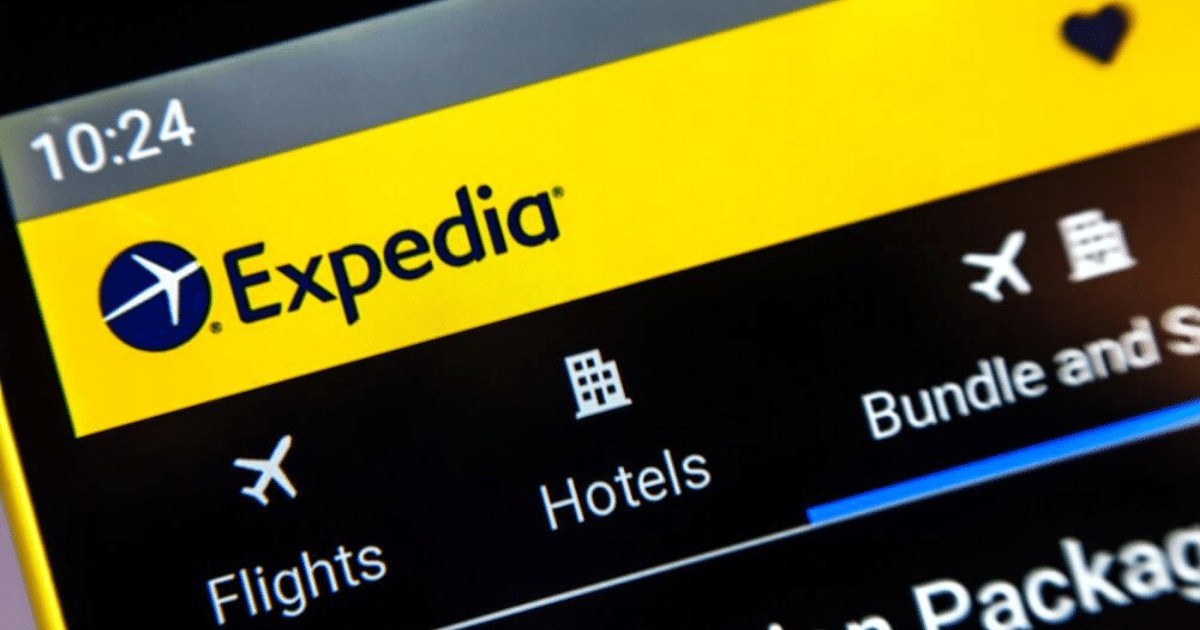
With a global presence in over 70 countries, Expedia receives over 58 million unique visitors each month, and its mobile apps are downloaded nearly 80 million times at a rate of over 200 downloads per minute. Apply to be listed on Expedia here!

Unlike Expedia, Viator is wholly focused on tours and activities. It sells its products to a global consumer base at Viator.com, 60 additional consumer-facing websites, mobile websites and apps, and through its global network of affiliates. Viator’s listings are supported by more than 500,000 reviews, photos, and videos posted by travelers. It boasts 7 million visitors per month. Apply to be listed on Viator here!
Get Your Guide

GetYourGuide focuses on listing activities based on where they are, rather than specifically what they are. This captures the market of people who decide what they want to do once they are already in a location and can put your product in front of whole new audiences who might not have even known that you exist. GetYourGuide receives an average of 2.5 million website visitors per month. Apply to be listed on GetYourGuide here!

Why work with an OTA?
In a word: exposure. This leads to more bookings and revenue. Online Travel Agents receive millions of website visitors every month from all over the world. They have cultivated a reputation for themselves as an authority on all things travel-related. People trust the recommendations they receive from OTAs, so by being listed on an OTA travel/ tour platform not only do you reach an audience of millions that you wouldn’t have otherwise reached, but they find you on a reputable source of information, which makes you look good as well.
Reach a wider audience
OTAs have revolutionized the tourism industry by providing a platform that enables tour and activity businesses to reach a wider audience. These platforms offer a one-stop shop for travelers to book everything they need for their trip, from flights and hotels to tours and activities. The OTA booking system provides a convenient and accessible way for travelers to book their desired activities and experiences.
By partnering with OTAs, tour and activity businesses can expand their reach to a global audience without the need for extensive marketing efforts. The OTA booking system provides access to a vast customer base, which may be difficult for individual businesses to reach on their own. Additionally, OTAs have a strong online presence, which means that their website is highly visible on search engines like Google, making it easier for travelers to find and book activities.
Streamline bookings

OTAs offer a user-friendly booking process, which is easy to navigate and understand. This is especially important for travelers who may not be familiar with the tour and activity business they want to book with or the destination they are visiting. OTAs provide detailed information about the tours and activities, including pricing, availability, and reviews from other travelers, making it easy for customers to compare and choose what they want.
On a similar note, OTAs allow businesses to use a central platform for booking and managing reservations. This means that businesses do not have to worry about managing bookings through multiple channels, such as phone or email. Instead, all reservations can be managed through a single platform, making it easy to keep track of bookings, manage availability, and update information.
Market your tours through an OTA
OTAs have a large customer base, which means that your tours will be visible to a much broader range of potential customers than if you were to rely solely on your own marketing efforts.
By listing your tours on an OTA travel platform, you can take advantage of the OTA’s marketing and advertising campaigns to promote your tours. This can include targeted emails, social media campaigns, and online advertising, all of which are designed to reach customers who are interested in the types of tours and activities you offer.
In addition, OTAs often have strong search engine optimization (SEO) capabilities, which means that your tours are more likely to appear at the top of search results when customers are searching for tours in your destination. This can help to increase your visibility and attract more customers to your business.
Reduce costs
As well as minimizing your marketing costs, listing your tours on an OTA platform can also help you reduce your distribution costs. OTAs typically charge a commission on each booking, but this cost is often lower than the cost of distributing your tours through other channels, such as travel agents or direct sales. This is because OTAs have already invested in the infrastructure required to market and sell tours, which means that you do not have to bear these costs.
What are the costs of working with an OTA?
Partnering with resellers, including OTAs, can be a cost-effective way for tour and activity businesses to expand their reach and generate more bookings. However, there are certain costs of partnering with resellers , including OTAs . These costs include:
- Commission: OTAs typically charge a commission on each booking, which can range from 10% to 25% of the tour price, depending on the platform and the type of tour. This commission is a cost that businesses need to factor into their pricing strategy and profit margins.
- Listing: While it is usually free to list tours on an OTA platform, some platforms may charge a listing fee or require businesses to pay for premium placement in search results. These costs can add up, particularly for smaller businesses that are trying to manage their marketing budgets.
- Payment processing: Some OTAs offer payment processing services, which means that businesses do not have to manage payments themselves. However, these services often come at a cost, such as a per-transaction fee or a percentage of the transaction value.
- Contractual obligations: When partnering with OTAs, businesses may be subject to certain contractual obligations, such as minimum availability requirements, cancellation policies, and commission rates. Failing to comply with these obligations can result in penalties and additional costs.

Tips for tour operators partnering with an OTA
Before partnering with OTAs, there are a few things you need to be aware of in terms of the information that they will most likely expect you to provide. There is no guarantee that every tour operator will be listed, but if you can provide these things it will go a long way towards improving your chances.
Offer real-time availability to travelers
Online Travel Agents want to offer their customers real-time booking confirmation, this means you need to be able to provide bookable spots for your tours or activity in real-time as well as update your availability in real-time as it changes.
Allow last-minute bookings
Allow last-minute bookings and specify how many hours before the tour starts your customers can book. Of course, you need enough time to prepare your tour before people come, but keep your minimum notice as close to the starting time of your experience as you can. Bearing in mind that a lot of travelers book activities on quite short notice, OTAs want to be able to provide this option for all of their listed activities. As such, it is advisable that you keep your cut-off time as close to the start of the activity as you can.
Leverage tour booking software

Not only technical, but also in the customer experience. For starters, your customer booking software should have a solid API integration with the OTA. You’d want to avoid manual work as much as possible. When sharing your availability with the OTA, you want the booking information pushed into your booking software, so it automatically populates your CRM , sales reports , and manifest . This will avoid lost customers and makes it easy to keep control over your bookings, even when it’s a large volume.
Accept bookings as much as 2 years in advance
Schedule your availability for 2 years and make sure people can book 2 years in advance. It’s good practice to make sure all your availability is published across as many channels as possible, but make sure it’s also available for a long time – the earlier you fill up your tours the better. Online Travel Agents attract a lot of people who are exploring your destination. Travelers want to know what they’ll get to see and do in your destination before they book their hotels and tours. Some travelers take up to 2 years to prepare for their trips, so make sure you always have the availability to attract them to your destination. Of course, as we said, short-term availability is important as well, but it’s best to cater to as wide a range of booking behaviors as possible.
Stand out with beautiful pictures of your destination
A picture speaks a thousand words and makes your product stand out from the rest. Be aware that your product is listed next to your competitors’ and the best picture is likely to receive the booking. Having nice, high-resolution pictures and videos will help you stand out and will always make your listing look professional, no matter where it’s being promoted.
Write unique product descriptions for each OTA
It’s perfectly acceptable to have your product listed on multiple Online Travel Agents. However, you need to have different descriptions for your product on each of them. Spend some time writing a special description for your tour specifically for each OTA’s listing. This is because of curation – OTAs want unique descriptions because they are easier to get to the top of the list of search engine responses. Look at the listings already on each OTA and use this format. Don’t have any weird formatting, inconsistent symbols, special offers, or your email address in the product description when you submit it.
Make the most out of your OTA partnership
Working with OTAs is a good strategy, but can be difficult to manage on an ongoing basis without the right technology to back you. How can you ensure that you don’t overbook tours when selling on multiple channels? How can availability be constantly up to date across your various distribution channels (without doing hours of admin work)?
Rezdy’s Channel Manager softwar e exists to do exactly that. Our Channel Manager lets you update your availability across all your distribution channels from one place. This in combination with the OTAs we integrate with offers you some formidable distribution strategy options.
Start accepting online bookings with Rezdy. Start your FREE 21-day trial or book a demo with our team of experts today.
If you enjoyed this article, be sure to subscribe to the Rezdy newsletter , where you’ll receive weekly up-to-date learnings and news from the Experiences industry; straight into your inbox.
Want to take your distribution strategy to greater heights?

Start accepting online bookings with Rezdy
Enjoy 21 days to take a look around and see if we are a good fit for your business.
No obligations, no catches, no limits, nada

The benefits of becoming a GetYourGuide supplier

How much does it actually cost to partner with an OTA?

Why Should Tour Operators List Their Products with OTAs?

What is an OTA?
The definition of an online travel agency (OTA) is a website that sells travel-related products, including airline tickets, car rentals, cruises, experiences, accommodations and more.
Vacation rental managers would utilize OTAs that specialize in renting temporary housing to travelers. Some well-known OTAs in this category include Airbnb, Booking.com, TripAdvisor Rentals, HomeAway, Vrba, Expedia and FlipKey.
How Do Online Travel Agencies Work?
An OTA allows vendors in the travel industry like vacation rental owners and managers to list and advertise their products, usually free of charge.
The channels earn money by taking a commission on every sale. OTA rates and pricing vary between platforms, with commission ranging from approximately 3% to 25%.
How Do I List My Rentals on OTAs?
Though each OTA has its own specific guidelines, most will walk you through a simple sign-up process, during which you’ll relay details about your property, and then create a listing description , upload photos of your rental, check off the amenities you provide and set your prices.
How Does the Booking Process Work?
Once you’ve completed the process, you can publish your listings and wait for booking requests to come in, unless you’ve enabled guests to instantly book your properties without requiring your approval. In this case, you’ll receive direct reservations rather than requests.
Travelers will generally search for rentals based on date, location and the number of guests in their party, but they can also apply a variety of additional filters, like room type, amenities and facilities.
Initial communication with prospective guests will take place through the channel inbox. With some platforms, once a booking has been made, guests will be able to access the contact information you’ve provided and can then reach out to you personally, either via phone, email or SMS.
How Do I Get Paid for Bookings Made Through OTAs?
Payment policies vary across channels. While some channels process payments on your behalf and then release your cut of the revenue at a certain stage in the reservation, others may allow you to process the payments independently. Hosts can choose how they wish to be paid (i.e. via credit card or bank transfer).
How Do I Get Reviews?
After your guests check out, it is a good idea to kindly request that they review you on the original booking channel, as prospective guests often base their booking decisions on other guests’ reviews. In some cases, the channel will reach out on your behalf and ask guests to rate their experiences.
You will often be prompted to review your guests as well since guest reviews give hosts some indication of how trustworthy and responsible guests are before accepting their booking requests.
Read more about Vacation Rental Management Software
What to Include in Your OTA Listing Profile The Most Popular OTAs for Short-Term and Vacation Rentals How to List and Manage Rentals on Multiple OTAs
See Guesty in Action

Whats Is An Online Travel Agency?
An Online Travel Agency (OTA) is a web-based marketplace designed to help travelers research and plan their vacations. Online travel agencies help consumers book flights, hotels, cars, tours, or vacation rental homes directly from the supplier.
Online travel agencies make reaching potential guests easier than traditional marketing and provide insight into the market and tools to help you get more bookings. These platforms also help to enable secure bookings, manage reviews, and communicate directly with guests.

Top Online Travel Agencies for Vacation Rentals
The top online travel agencies for vacation rentals include:
- Booking.com
- TripAdvisor
What Is the Best OTA for Vacation Rentals?
The best online travel agency for your vacation rental business depends on the specific features that you’re looking for. For example, if you’re renting out a single property, you might opt for Airbnb because of its lower commission fees. On the other hand, if you have a boutique hotel, Booking.com could be more suitable for your business.
While all the previously mentioned OTAs are leaders in the industry, each owner should decide for themselves what works best for their property. Ask yourself the following questions: What kind of audience would you like to be exposed to? Which OTA provides the user experience that you are looking for? What resources stand out? By knowing the demographic of each platform and the tools that they provide for both hosts and guests, you’ll be able to make an informed decision.
What Is the Largest Online Travel Agency?
Airbnb is the largest OTA for vacation rentals with more than 6 million rental properties in 100,000 cities across 191 regions. Its popularity is primarily due to its user-friendly booking interfaces.
How Do Online Travel Agencies Work for Vacation Rental Owners?
Most online travel agencies allow vacation rental owners to list and advertise their properties for free. Depending on the platform, the OTA may take a commission of 3% to 25% of each sale made on their site.
Although every OTA varies, most of them will require a simple sign-up process. You’ll then be prompted to describe your property, including the location and size of the home as well as what amenities you offer. After uploading photos and setting your prices, you’ll be ready to accept bookings.
Depending on the OTA and settings you choose, guests will either make direct reservations or request to make a reservation.
Travelers find your home by searching for rentals in the location and the dates of their vacation. They can also apply filters like the number of guests they are searching for and property types and amenities offered.
Guests can contact you directly through the OTA inbox or by phone or text message if the specific OTA allows you to share your contact info. Refer to our online travel agency list above to find the best OTA for your property.
- Read more: Vacation Rental Listing Sites: Comparison of Rates and Fees
Click here for a free, personalized demo to learn exactly how Hostfully will help your business thrive.
- Property Management Platform
- All Features
- Channel Manager
- Central Calendar
- Unified Inbox
- Direct Booking Website
- Integrations Marketplace
- Success Stories
- Digital Guidebooks
- Industry Resources
- Research & Reports
- Product Resources
- Hostfully University
- Video Tutorials
- Business Health Quiz
- Guidebook ROI Calculator
- Direct Bookings ROI Calculator
- Distribution
Online Travel Agencies (OTAs): Choosing the Best Ones for You

Get tips on how to use Hostfully to optimize your vacation rental business and make more profit.
What’s in this article?
If you’re a vacation rental owner or property manager, it’s likely you’re always on the lookout for ways to increase your bookings and revenue. Thanks to the growing popularity of online travel agencies (OTAs), you can easily expose your rental property to millions of potential guests around the world. But with so many OTAs to choose from, how do you know which ones are the best fit for your vacation rental business?
Understanding online travel agencies
Before we jump into the specifics of choosing the right OTAs, it’s important to understand what online travel agencies are. An OTA is a third-party platform that allows vacation rental owners and management companies to list their properties and rent them out to travelers. These platforms have become increasingly popular in recent years, as they offer a convenient way for travelers to find and book vacation rentals.
How reservations get transferred to you
After a customer books a vacation rental through an OTA, the reservation details are sent to the owner. If you use a property management system (PMS) like Hostfully, the reservation details are integrated and placed in your central calendar.
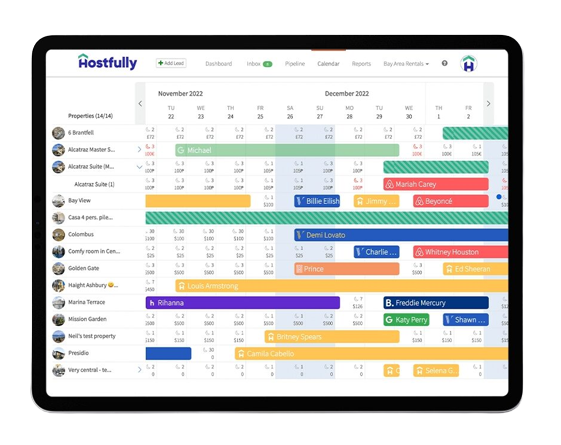
However, if you don’t use a PMS, then reservation information will be sent to your email of choice or the app on your smartphone.
Who manages taxes, fees, and payouts
When you list your vacation rental on an OTA, you may be responsible for managing taxes and fees for each booking. Full-service OTAs usually collect taxes and fees on your behalf, however, it’s important you perform your due diligence. Note that if you’re using a listing site, you’ll need to manage these costs on your own.
As for payouts, many OTAs offer a secure, online payment system to the guest through which it collects credit card info and rental fees. If the platform charges a commission fee for the booking, that’ll be removed from the payout.
For each reservation and with all OTAs, you’ll receive a breakdown of what was collected, what was retained by the OTA, and how much you will receive. It’s important to keep accurate records of all transactions and expenses related to your vacation rental business, as you’ll need this information come tax time. Note that in some cases, commissions collected by the OTAs have tax deduction benefits.

Features and benefits of top online travel agencies
There are many online travel agencies for vacation rental managers to choose from, each with their own unique set of features and benefits. Ultimately, the OTA you choose will depend on your specific business goals. Consider factors like commission fees, customer service, dynamic pricing and instant booking features, and the types of travelers each platform attracts when making your decision. Let’s take a look at three of the top OTAs and their features:
Airbnb is one of the most popular booking platforms for vacation rentals, with millions of listings worldwide. The platform offers a user-friendly interface, instant bookings, and a secure payment system. Airbnb also has a strong social component, allowing guests to connect and interact with hosts before and during their stay. From treehouses to castles, guests can find a wide range of unique and memorable places to stay. Additionally, Airbnb allows both private and shared property listings (for example, a spare bedroom), and offers guest experiences, allowing guests to book activities and tours led by locals.
Booking.com
Booking.com is another popular OTA with a wide range of short-term rental and transportation options including hotels, standalone properties, flights, and car reservations easily bundled together which may make the booking process appealing to guests. Booking.com also offers a loyalty program, which rewards frequent travelers with discounts and perks.
Vrbo is another popular platform but unlike Airbnb, it only offers private short-term rental listings so any guests seeking a shared occupancy will focus their search on Airbnb. Vrbo is known for overall more flexible cancellation policies than Airbnb and its “Book with Confidence Guarantee” provides extra protection for guests in case of double bookings or last-minute cancellations by the owner.
Ultimately, the best OTA(s) for you will depend on your individual needs and short-term rental business goals. Consider factors like commission fees, customer service, and the types of travelers each platform attracts when making your decision.

Listing your vacation rentals on multiple online travel agencies
You can list your properties on more than one OTA may significantly increase your bookings and revenue. But with multiple listings, there is always the risk of double bookings. Here are some ways to avoid this:
Technology tools to mitigate double bookings
One way to avoid double bookings is to sync your calendars across multiple OTAs. There are several technology tools available to provide synced functionality. These range from iCal sync to vacation rental property management software (PMS) like Hostfully.
One benefit of a reliable PMS like Hostfully is that it will automatically sync your calendar. If you don’t use a PMS, it’s critical to keep your availability up-to-date and cross-check your listings across platforms to avoid double bookings.
Managing and aggregating reviews
Another important consideration when listing your vacation rental on multiple OTAs is managing your reviews. Many OTAs prioritize properties with positive reviews and associated responses by the hosts. So it’s important to be responsive and encourage guests to leave reviews on the platforms where you’re listed. If you find it challenging to do this across multiple OTAs, you may want to explore a PMS which will automate this task for you.
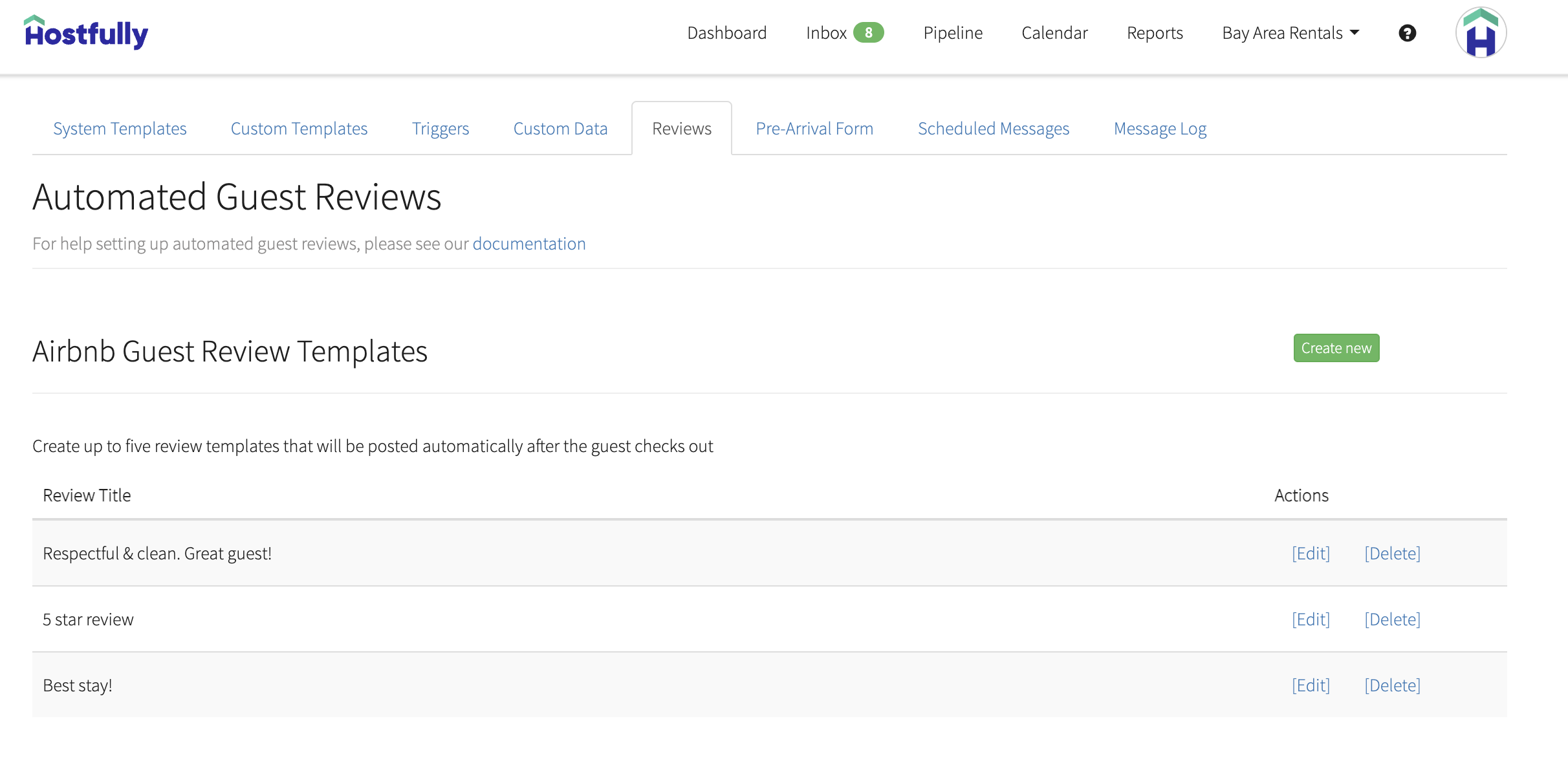
How pricing is synced across OTAs
When listing your vacation rental on multiple OTAs, it’s important to make sure that your pricing is consistent across all platforms. This can be easily achieved by using vacation rental software that will push uniform pricing across the listing sites and OTAs.
Note that most top-performing PMSs also give you the option to add a % based on the channel. This can help ensure you’re getting consistent revenue across all the OTAs who charge different commissions. It can also give you the flexibility to add a surcharge if you know guests coming from one type of OTA are problematic or require additional servicing costs.
Factors to consider when selecting an online travel agency
Planning a vacation can be an exciting experience, but it can also be overwhelming. With so many online travel agencies (OTAs) to choose from, it can be difficult to determine which one is the best fit for your needs. Here are just a few:
Cancellation policies
Before choosing an OTA, make sure to understand its cancellation policy options. Some platforms may offer more flexibility than others, which can be particularly important during uncertain times like a pandemic.
Target guest audience
While some platforms may cater more towards families, others may be better suited for business travelers so be sure to list your property on platforms that align with your target audience.
Commission rates
Additionally, some OTAs may have a higher commission rate than others. It’s important to weigh the benefits of listing on a particular platform against the cost of the commission. If an OTA has a higher commission rate but also has a larger audience of your target guests, it may be worth the investment.
Reputation and customer service
When selecting an OTA, it’s important to consider their reputation and customer service. For example, if you’re considering using Airbnb, look at the reviews from other Airbnb hosts and guests to get a sense of the platform’s reliability and responsiveness. A good track record of resolving issues quickly and efficiently goes a long way.
Also, consider the level of support the OTA provides to its property owners. Do they offer resources and guidance for optimizing your listing? Do they have a customer service team available to assist with any issues or questions you may have? Choosing an OTA that provides excellent customer service can make a big difference in your overall experience as a short-term property manager.
Take advantage of OTA’s marketing and advertising tools
Finally, consider the marketing and advertising tools that the OTA provides. Some platforms may offer additional marketing opportunities, such as sponsored listings, targeted audiences, or featured properties, or partnerships with other companies that can help increase the visibility of your rental property.
By taking advantage of these tools, you can increase the likelihood of your vacation rental being seen by potential guests and ultimately booked.
Optimize your vacation rental listing for maximum visibility and bookings
Once you’ve selected the right platform for your rental, it’s important to optimize your property listing to maximize visibility and bookings. Here are some tips:
- Invest in high-quality photos and videos: High-quality photos and videos can make a big difference in how your vacation rental appears to potential guests.
- Write a compelling property description: Your property description should be clear, concise, and highlight the unique features of your vacation rental.
- Regularly update your calendar: Make sure your calendar is up-to-date to avoid double bookings and ensure that potential guests can see your availability.
Overall, selecting the right OTA for your vacation rental requires careful consideration of several factors. By understanding the cancellation policies, targeting your audience, considering the OTA’s reputation and customer service, and taking advantage of marketing tools, you can make an informed decision that will help you maximize your bookings and revenue and let you scale for your long-term business goals.
How does the booking process work on online rental sites? Guests can search for properties based on their desired location, dates, and preferences. Once they find a suitable listing, they can submit a booking request or instantly book if the option is available. Hosts have the option to accept or decline the booking request, and once accepted, the guest completes the payment to confirm the reservation.
Are there any restrictions or regulations for short-term rentals? Short-term rental regulations vary by location. It’s essential to research and understand any local laws, zoning regulations, or homeowners association (HOA) rules that may impact your ability to rent out your property on a short-term basis.
What safety measures are in place to protect hosts and guests? Online rental platforms may provide safety features, such as guest identity verification, secure payment systems, host/guest reviews, and customer support. Hosts are also encouraged to communicate openly, set clear expectations, and establish house rules to ensure a safe and positive experience.
What fees or commissions are associated with using online rental sites? Fees can vary but are often a percentage of the booking total and some platforms may charge service fees to guests or hosts. Check each site’s policies for specifics.
- Press & Podcasts
- Testimonials
- Affiliates & Referrals
- Partner Promotions
- Customer Support
- Onboarding Webinars
- Join office hours
- Join CSM office hours
- API Documentation
© 2024 Hostfully, All Rights Reserved.
We value your privacy preferences
Privacy overview.

- Revenue Management
- Hotel Consulting
- Operations Management
- Asset Management
- Pre-Opening
- Owner Representation
- Turnaround Management
- About Xotels
OTA – Online Travel Agency
What is the meaning / definition of OTA , in the hospitality industry ?
OTA stands for: Online Travel Agency .
OTAs are online companies whose websites allow consumers to book various travel related services directly via Internet. They are 3rd party agents reselling trips, hotels, cars, flights, vacation packages etc. provided / organised by others.
Travel shopping via online agencies has become very popular nowadays. Especially in the last minute segment and also because of the frequent usage of the smartphones. Today consumers are on-the-go and the advantage of a booking engine and the reservation solutions provided by the OTAs is that it offers instant payment and booking confirmation.
Examples of the most commonly known OTAs are:
- The Priceline Group ( Booking .com, Priceline.com, agoda.com, KAYAK, rentalcars.com, OpenTable)
- Expedia, Inc. (Expedia.com, Hotels.com, Egencia, Hotwire, Trivago, Venere.com, CarRentals.com, Classic Vacations, Expedia CruiseShipCenters, Expedia Local Expert (LX), Wotif Group, Travelocity)
- TripAdvisor Inc (tripadvisor.com)
- Opodo (opodo.com)
Synonyms for OTA are Alternative Distribution System ( ADS ) and Internet Distribution System ( IDS ).
- Electronic Distribution ( ED )
- Distribution Strategy
- Channel Management
- Online Travel Agency
Share This Story, Choose Your Platform!
About the author:.
New Research: 5 Things Hoteliers Need to Know About OTA Travelers
March 31st, 2021 at 10:00 AM EDT
New research shows that travelers that book trips via online travel agencies will play a significant role in hospitality’s recovery. Hoteliers that keep the evolving wants and needs of OTA travelers in mind will have an advantage as properties reimagine how they do business.
Travel providers continue to feel the effects of the Covid-19 pandemic, but many would agree that as widespread vaccine inoculations roll out, rapid testing sophisticates, and health passports are developed, there is a light at the end of the tunnel.
As hospitality leaders prepare for the beginnings of travel’s recovery, paying close attention to new behaviors and demands of travelers will be key. According to new research from Expedia Group done in partnership with global research firm BVA BDRC , travelers that book trips with online travel agency sites (OTAs) will be valuable to the industry’s rebound. Expedia Group’s economic impact study, which looks at OTA traveler behavior and spending patterns across the U.S., the UK, France, and Mexico through the lens of Covid-19, found that the contribution of OTA travelers — especially in the domestic category, where initial rebound will be strongest — should not be overlooked.
“Historically, OTAs have contributed a significant amount of value to the tourism industry and the overall economy — from the spend generated by OTA travelers, to the number of jobs generated — and we expect this to continue as the industry recovers from the impacts of the pandemic,” said Melissa Maher, senior vice president, Marketing and Industry Engagement, Expedia Group. “Because OTA customers tend to travel for leisure, and place value on overall trip experience, their spending patterns make them valuable guests as properties reopen their doors.”
Here, we look at five takeaways from the research that hoteliers should keep in mind about OTA travelers as properties reopen their doors.
1. OTA travelers spend on par, and sometimes more, on their accommodation and on amenity services than direct bookers.
There’s a common misperception throughout the hotel industry that direct bookers are more profitable for a hotel than OTA travelers. But Expedia Group found that, just prior to the pandemic, these travelers often spent more on property than direct hotel bookers.
“Just prior to the onset of the pandemic, OTA travelers spent more on-property — on things like hotel restaurants and spa services, for example — ultimately generating more revenue for the hotel. We attribute this to the typically longer length of stay for OTA bookers,” Maher said.
For example, in the U.S., domestic OTA travelers spend 16 percent more per trip and 5 percent more on property than those who book direct, and nearly the same amount on accommodations. They also stay an average of nearly 5 nights on a property, compared to just over 4 nights by direct bookers. They’re also more likely to book higher-end hotels, such as upper full service or luxury, than direct hotel bookers.
In the UK, domestic OTA travelers spend more than twice on hotel accommodation than direct bookers, as well as an average of one more night stay, at 4.4 nights versus. 3.5 nights. Domestic hotel guests who book via OTAs are also more likely to use several on-property paid-for services, including room service, spa service, the mini bar, and hotel dining offerings than direct hotel bookers.
Similarly, the research found that Mexico’s domestic OTA travelers also spend more on accommodation than direct bookers, and outspend direct bookers in categories such as hotel restaurant, mini bar, hotel bar, resort services, laundry services, spa, and childcare services.
Meanwhile, France’s domestic OTA travelers spend 8 percent more than direct bookers on accommodations, 5 percent more at on-property restaurants, and 26 percent more on hotel bar services.
2. OTA travelers generate more revenue for local communities than direct bookers.
Domestic OTA travelers will be vital to destinations as they rebuild their local tourism industries, Expedia Group’s research found. According to Maher, “OTA travelers are active travelers, meaning they shop, visit cultural attractions, and partake in local cuisine, among other activities, contributing more to local communities.” In the U.S., domestic OTA travelers spend 12 percent more on meals and drinks, 6 percent more on activities, and 27 percent more car rentals than direct hotel bookers, while Mexico’s domestic OTA travelers spend 20 percent more on meals and drinks, 24 percent more on activities, and 4 percent more on car rentals. In the UK and France, OTA travelers are more likely to visit cultural venues, historic sites and try local restaurants.
3. Travelers use OTAs for planning and research before they book.
Beyond booking, customers are also widely turning to OTAs in the planning and research phases before making a purchase. OTAs play a significant role when it comes to comparing rates across multiple travel products, from hotels to flights, to car rentals, and activities, as well as balancing features such as safety and room type.
Expedia Group found that in the U.S., the majority of both domestic and international travelers use OTAs to plan or research at least one aspect of their trip, at 61 percent and 74 percent, respectively. Additionally, 56 percent of domestic travelers and 71 percent of international travelers that use an OTA in the research and planning phases are likely to book via an OTA.
About half of domestic travelers and two-thirds of international travelers in France and the UK use OTAs to plan or research at least one aspect of their trip, and at least half of those who used an OTA for planning or researching ended up purchasing their travel from an OTA. The number was even higher for domestic travelers in Mexico, where 72 percent reported using OTAs to plan or research their trip.
4. Travelers Are Most Likely to Use OTAs to Find the Best Value
It’s common for consumers to prioritize value in periods of economic downturn, so it makes sense that in Expedia Group’s research, OTA travelers in the U.S., the UK, France, and Mexico turn to such platforms to find the best nightly rate.
Other top reasons travelers use OTAs include comparing properties in one location, seeking out the best room to meet their expectations on size, safety, and cancellation policies, buying bundled offers that combine multiple aspects of a trip, and finding promotions and earning reward points.
“Travelers have new preferences and motivations when booking accommodations, which isn’t surprising nor unexpected given our current Covid-19 environment,” Maher said. “Our research shows that OTAs outperform other distribution channels in providing options to meet a range of expectations, driving travelers to shop on online channels and compare hotel rooms and features to find the best options.”
5. How Travel Providers Can Successfully Engage With OTA Travelers
As travel starts to recover and OTA bookings begin to pick up, hoteliers must first understand who will travel first, and when and how they intend to book their stays. With more options and competition for travelers’ dollars, they are even more particular in their demands.
For example, on average, in the U.S., Mexico, and France, eight in 10 travelers said hotels in similar price ranges look the same online and that they must do more to stand out — and this crossed generational lines. “Clearly, hotels aren’t doing enough to make their value proposition unique and differentiated,” Maher said.
Hotel properties can stand out from their competitive sets by offering flexible cancellation policies, as well as incentives for bookings via mobile or discounts for longer bookings, as travelers look for extended stays to get away from home. Value-added incentives such as breakfast vouchers, free parking, or upgrades to premium rooms can help attract bookings as well.
And of course, cleanliness measures continue to be scrutinized by customers. “It has never been more critical to clearly communicate health and safety features so travelers feel confident in booking. We’ve had hundreds of thousands of properties add health and cleanliness information on Expedia.com, which includes enhanced cleaning measures, contactless check-in, social distancing, and other guest safety considerations,” Maher said.
Reputation also matters, with nearly 75 percent of U.S. and Mexican travelers reading reviews before booking a property. Travelers across all regions rate reviews about ‘room cleanliness’ and overall condition of the hotel as most influential. Reviews make an impact, especially to the heavily socially influenced American millennials and Gen Z, who showed slightly higher consideration for a property based on reviews.
Travelers are also viewing multiple photos before making a booking decision. More than half of Mexican travelers view 10 or more photos, and for millennials and Generation Z, it’s 15 or more. Meanwhile, 80 percent of French travelers and nearly 90 percent of UK travelers say photos of the hotel room are most essential to their decision.
As Maher explained, “While the travel industry continues to face a bumpy path to recovery, now more than ever, people are dreaming of their next trip. With this in mind, hotels should do their best to represent their property benefits and adjust their offerings to help encourage guests in the dreaming or research phase of their travel journey to book.”
This content was created collaboratively by Expedia Group and Skift’s branded content studio, SkiftX .
Have a confidential tip for Skift? Get in touch
Tags: france , hospitality , hotel marketing , leisure travelers , mexico , online travel agencies , otas , SkiftX Showcase: Hospitality , SkiftX Showcase: OTAs , united kingdom , united states
Advertiser Disclosure
Many of the credit card offers that appear on this site are from credit card companies from which we receive financial compensation. This compensation may impact how and where products appear on this site (including, for example, the order in which they appear). However, the credit card information that we publish has been written and evaluated by experts who know these products inside out. We only recommend products we either use ourselves or endorse. This site does not include all credit card companies or all available credit card offers that are on the market. See our advertising policy here where we list advertisers that we work with, and how we make money. You can also review our credit card rating methodology .
OTA vs. Metasearch: A Quick Vocabulary Lesson!
Erin Miller
Content Contributor
188 Published Articles
Countries Visited: 26 U.S. States Visited: 28
Stella Shon
News Managing Editor
87 Published Articles 622 Edited Articles
Countries Visited: 25 U.S. States Visited: 22

Online Travel Agency
Metasearch engine, final thoughts.
We may be compensated when you click on product links, such as credit cards, from one or more of our advertising partners. Terms apply to the offers below. See our Advertising Policy for more about our partners, how we make money, and our rating methodology. Opinions and recommendations are ours alone.
Let’s delve into a brief lesson on the basic concept of OTAs vs. metasearch engines.
Previously, these terms were fairly straightforward to define, but technology has progressed and there are now many ways in which these services overlap. We’ll do our best to make a decent distinction between them here, but we’ll warn you…it’s not always that simple!
Online Travel Agency : a website that traditionally offers both search and booking capabilities. OTA services usually include flights, hotels, and rental cars, with some also offering vacation rentals, cruises, and events/activities. OTAs often offer bundles to secure greater discounts when booking multiple services together.
An OTA is a sort of “middle-man” between the user and the airline/hotel/etc. While they no longer make commissions on flights, OTAs may take a cut of 15%-20% of your booking fee from the hotel.
Additionally, OTAs also often have toll-free phone numbers for personal assistance with booking/re-booking reservations.
Big players you’ve likely heard of in the OTA industry include Expedia , Hotels.com , Travelocity , Orbitz , Priceline , and Booking.com , among others.
Metasearch Engine : one overarching search engine that aggregates data from various sources (including other third-party search engines, OTAs, hotel websites, etc.) to provide a more comprehensive results page. This tool basically does what you’d do yourself by checking multiple different websites to compare airfares; it just checks more sites much faster… and no offense, but it’s probably smarter!
In the past, metasearch engines only offered the capability to search, directing the user to a third party OTA or individual airline to book and charging a small fee for their services. That’s no longer always the case, as we’re seeing some metasearch engines emerge with the capability to book directly through their websites.
Similar to OTAs, metasearch engine services usually include flights, hotels, and car rentals; some even provide packages to rival OTA’s discounted prices when booking services together.
Big players you’ve likely heard of in the metasearch industry include Google Flights , Kayak , Momondo , and Hipmunk, among others.
Here’s where it gets confusing. Most OTAs now offer price comparison features that essentially stack their results up against other search results, providing a more metasearch-like result. However, this option usually allows users a max of 3-4 comparison sites, whereas metasearch engines compare many more.
In addition, some metasearch engines like Hipmunk now offer assistance with travel planning, booking, canceling, etc., whereas before this was strictly OTA territory.
Things get even more convoluted when an OTA (ex: Expedia) buys a metasearch site like Kayak. Or when a metasearch site like Hipmunk uses an OTA (Travelocity, owned by parent company Expedia ) to power their hotel bookings. Or when a metasearch site like Skyscanner offers various OTAs (Kiwi.com, lastminute.com, etc.) through which to book your flight.
Lastly, we all know OTAs rank their results. How do they do that? Is it fair? Our friends at Duetto Research provide an eye opening report into the ins and outs of OTA search results.
The list goes on, but by now your head may be swimming!
The point is, whether you choose to use multiple OTAs or a certain metasearch engine is really personal preference, and truly depends on how much digging you want to do yourself.
We list both types in our travel resource post on flight searches and go into our thoughts on the best of the best in a separate post.
Additionally, we’ve got an entire article dedicated to the best websites for booking hotels at the cheapest prices.
After all, it is an extensive look into travel resources, and we wouldn’t be Upgraded Points if we didn’t go in-depth!
Frequently Asked Questions
What is the difference between an ota and a metasearch engine.
An Online Travel Agency is a website that traditionally offers both search and booking capabilities. OTA services usually include flights, hotels, and rental cars, with some also offering vacation rentals, cruises, and events/activities.
A Metasearch Engine is one overarching search engine that aggregates data from various sources (including other third-party search engines, OTAs, hotel websites, etc.) to provide a more comprehensive results page.
Was this page helpful?
About Erin Miller
An experienced points hacker, Erin is Alex’s partner-in-crime and contributes to Upgraded Points with in-depth guides and relationship management. Erin’s work has been cited in multiple major publications.
INSIDERS ONLY: UP PULSE ™

Get the latest travel tips, crucial news, flight & hotel deal alerts...
Plus — expert strategies to maximize your points & miles by joining our (free) newsletter.
We respect your privacy . This site is protected by reCAPTCHA. Google's privacy policy and terms of service apply.
Related Posts

UP's Bonus Valuation
This bonus value is an estimated valuation calculated by UP after analyzing redemption options, transfer partners, award availability and how much UP would pay to buy these points.

Channel manager
Veröffentliche auf Dutzenden von Websites und erreiche Millionen.
Das einfachste Abrechnungssystem.
Dynamische Preise
Die besten Preise im Automatikmodus, wie bei Fluggesellschaften und Hotels.
Dein Unternehmen, deine Gäste und deine Reservierungen in der Tasche.
Kautionsschutzgarantie zum Schutz Ihrer Immobilien.
Direktbuchungen
Erhalten Sie Buchungen, senden Sie Werbeaktionen und teilen Sie sie in sozialen Medien.
Nachrichten
Alle Kommunikationen an einem Ort.
Beginnen Sie Ihre Anzeigen mit professioneller Beratung.
Anzeigenoptimierung
Wir helfen Ihnen, die perfekte Anzeige zu erstellen."
Verkaufen Sie Extras und schaffen Sie ein großartiges Erlebnis.
Ihre professionelle buchbare Website für direkte Reservierungen.
Kalendersynchronisierung
Vereinfachen Sie die Buchungen, ohne manuelle Aktualisierungsprobleme.
Bewertungsmanagement
Alle Bewertungen Ihrer Gäste an einem Ort.
Einzige Rechnung
Vergessen Sie das administrative Chaos der Abrechnung.
Online Check-in
Senden Sie automatisch alle Informationen Ihrer Gäste an die Behörden.
Gestionnaire de canaux
Publiez sur des dizaines de sites et atteignez des millions.
Le système de paiement le plus simple.
Prix dynamiques
Les meilleurs prix en mode automatique, comme les compagnies aériennes et les hôtels.
Application mobile
Ton entreprise, tes invités et tes réservations dans ta poche.
Garantie de la caution pour protéger vos propriétés.
Réservations directes
Obtenez des réservations, envoyez des promotions et partagez sur les réseaux sociaux.
Toutes les communications au même endroit.
Commencez vos annonces avec les conseils de professionnels.
Optimisation des annonces
Nous vous aidons à créer l'annonce parfaite.
Vendez des extras et créez une expérience exceptionnelle.
Votre site web professionnel pour recevoir des réservations directes.
Sincronización de calendarios
Simplifica las reservas, sin complicaciones de actualización manual.
Gestion des avis
Tous les avis de vos clients dans un seul endroit.
Facture unique
Oubliez le chaos administratif de la facturation.
Enregistrement en ligne
Envoyez automatiquement toutes les informations de vos clients aux autorités.
Publica su dozzine di siti e raggiunge milioni
Il sistema di pagamento più semplice.
Prezzi dinamici
I prezzi in modalità automatica, come fanno le compagnie aeree e gli hotel.
Applicazione mobile
Il tuo business, i tuoi ospiti e le tue prenotazioni nel palmo della mano.
Garanzia di deposito cauzionale affidabile per la protezione delle tue proprietà.
Prenotazioni dirette
Ottieni prenotazioni, invia promozioni e condividi sui social media.
Bacheca unificata
Tutti i tuoi messaggi in un unico posto.
Esperta configurazione
E inizia la tua attività valutata da esperti in affitti a breve termine.
Listing optimisation
We help you create the perfect listing to stand out.
Optional extras
Sell extras online and build a great experience for guests.
Your professional bookable website to receive direct bookings.
Calendar sync
Streamline bookings, no manual updating hassles.
Gestione delle recensioni
Panoramica di tutte le recensioni dei tuoi ospiti in un unico posto.
Fattura singola
Per dimenticare il caos amministrativo della fatturazione.
Check-in online
Inviare automaticamente tutte le informazioni dei tuoi ospiti alle autorità.
Nachrichten und Informationen zur Ferienvermietung.
Airbnb Revenue Calculator: breaking down host profits
Remote airbnb management: offline and online tips, airbnb rental arbitrage: still worth starting in 2024, fallstudien.
Benutzer von Your.Rentals.
Kurzzeitvermietung leicht gemacht.
Notizie e informazioni sulle affitto.
Casi di studio
Utenti di Your.Rentals.
Affitto a breve termine più semplici.
Centro de información del alquiler vacacional.
Casos de estudio
Usuarios reales de Your.Rentals.
Sobre nosotros
Alquiler vacacional más simple.
Publica en docenas de sitios y llega a millones.
El sistema de cobro más simple.
Precios dinámicos
Los mejores precios en modo automático, como las aerolíneas y hoteles.
Aplicación móvil
Tu negocio, tus huéspedes y tus reservas en el bolsillo.
Garantía de la fianza para la proteger tus propiedades.
Reservas directas
Obtén reservas, envía promociones y comparte en redes sociales.
Todas las comunicaciones en un solo lugar.
Empieza tus anuncios asesorado por profesionales.
Optimización de anuncios
Te ayudamos a crear el anuncio perfecto.
Vende extras y crea una gran experiencia.
Tu sitio web profesional reservable para recibir reservas directas.
Gestión de reseñas
Todas las reseñas de tus huéspedes en un solo lugar.
Factura única
Olvida el caos administrativo de la facturación.
Registro de huéspedes
Automatiza el check in y envío de los datos a las autoridades.
The information center for short term rentals.
Case studies
Don't just take our word for it.
Let's make renting simple.
Steigern Sie Ihre Einnahmen
Kombinieren Sie Software, die den Markt automatisch scannt und Ihre Preise anpasst, mit echten Personen, die Ihnen fachkundige Beratung bieten.
Einfache Ferienvermietung
Von Buchungen bis Zahlungen an einem Ort. Verabschieden Sie sich von mehreren Softwareanbietern und konzentrieren Sie sich auf die Schaffung unvergesslicher Erlebnisse für Ihre Gäste.
Brauchst du mehr Zeit?
Die "Alles-in-einem" Plattform von Your.Rentals kombiniert alles an einem Ort, einschließlich Automatisierungen, um Ihnen die Zeit zurückzugeben, die Sie benötigen, um Ihr Geschäft zu wachsen.
Boostez vos revenus
Associez un logiciel qui analyse automatiquement le marché et ajuste vos tarifs, avec de vraies personnes qui vous fournissent des conseils experts.
Location de vacances simplifiée
Des réservations aux paiements, tout en un seul endroit. Dites adieu à plusieurs fournisseurs de logiciels et concentrez-vous sur la création d'expériences mémorables pour les invités.
Besoin de plus de temps ?
La plateforme "Tout-en-un" de Your.Rentals regroupe tout en un seul endroit, y compris les automatisations pour vous rendre le temps dont vous avez besoin pour faire croître votre entreprise.
Aumenta i tuoi guadagni
Combina software che scansiona automaticamente il mercato e regola le tue tariffe, con persone reali che forniscono consulenza esperta.
Facilita l'affitto per le vacanze
Dalle prenotazioni ai pagamenti, tutto in un unico luogo. Dì addio a diversi fornitori di software e concentrati sulla creazione di esperienze memorabili per gli ospiti.
Hai bisogno di più tempo?
La piattaforma "Tutto-in-Uno" di Your.Rentals mette insieme tutto in un unico posto, inclusi automatismi per restituirti il tempo che ti serve per far crescere la tua attività.
Potencia tus ingresos
Combina software que escanea automáticamente el mercado y ajusta tus tarifas, con personas reales que te brindan asesoramiento experto.
Alquiler vacacional fácil
De las reservas a los pagos en un solo lugar. Di adiós a múltiples proveedores de software y concéntrate en crear experiencias memorables para los huéspedes.
¿Necesitas más tiempo?
La plataforma "Todo-en-Uno" de Your.Rentals combina todo en un solo lugar, incluidas las automatizaciones para devolverte el tiempo que necesitas para hacer crecer tu negocio.
Publish on dozens of sites and reach millions of guests.
The simplest payment service.
Smart rates
Set the best prices on autopilot mode, just like airlines and hotels do.
Your business in your pocket: your guests and booking on the go.
Reliable security deposit guarantee for your properties protection
Direct booking
Get booked, send promo codes and share on social media.
Unified inbox
All your guests communications in one place.
Expert setup
Start your business assessed by short term rental experts.
Review management
Overview of all your guests reviews in one place.
Single invoice
For get about the administrative invoicing caos.
Send all your guests information to authorities automatically.
Max out your profits
Combine software that automatically scans the market and adjusts your rates, with real people to provide you with expert advice.
Easy short term rentals
From bookings to payments in one place. Say goodbye to multiple software vendors and focus on creating memorable guest experiences.
Need extra time?
Your.Rentals All-in-one platform combines everything in one place, including automations to give you back the time you need to grow your business.
What is an OTA? 10 tips for Online Travel Agency hosts
by Louise Brace | Feb 23, 2022 | Airbnb Host Tips , Vacation Rental Industry | 0 comments
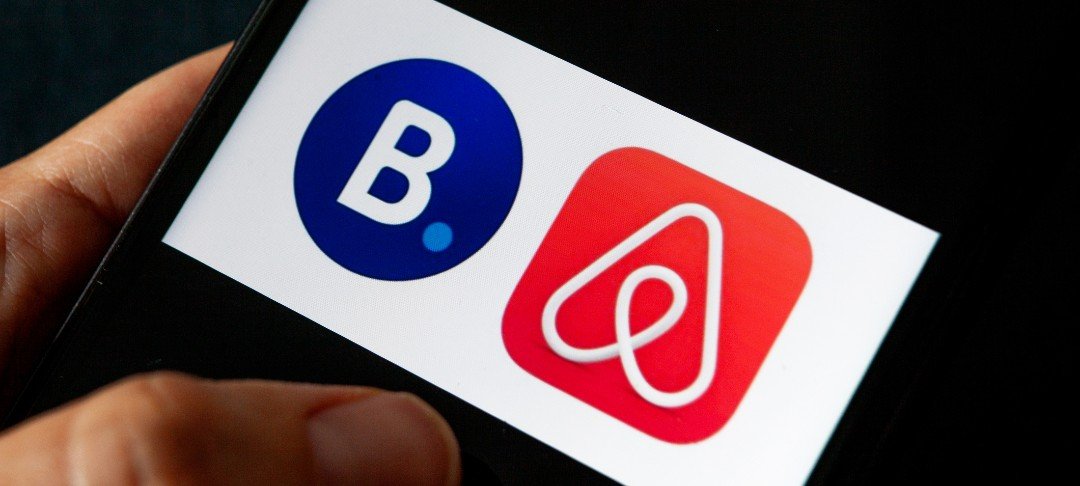
If you are a host just starting on your short-term rental journey you might be asking yourself what all the talk is about OTAs?
OTA stands for Online Travel Agency. These are online marketplaces that sell everything to do with travel, such as airline tickets, accommodation, tours, car rentals, and everything in between!
As a short-term rental host, you will advertise your accommodation on the OTAs or Online Travel Agents which specialise in travel accommodation.
You create an account and the OTA promotes your property around the world, advertising the rates, details and photos. It means that travellers can see all their options in one place with a simple search and you get to advertise to a greater range of potential guests.
OTAs consistently appear at the top of search engines results and are a necessary and effective way to market your properties and enjoy more guest bookings, especially when you are first starting out in the short-term rental business.
Let’s take a look at how the OTAs work and how you can get the best out of them.
Types of Online Travel Agencies for accommodation hosts
There is no doubt that the global OTA platforms , such as Airbnb , Booking.com , TripAdvisor , Vrbo and Google Vacation Rentals deliver a high volume of enquiries to hosts, whether you convert those bookings depends on how well you optimise your listing’s advertisement (see below).
Regional OTAs , such as Autentical , provide an excellent platform for hosts to advertise their property to guests who know exactly where they want to visit and are often investigating the destination before they are thinking about the accommodation.
In some locations, the supply often outweighs the demand on the global OTAs, so adding a regional OTA to your marketing strategy gives you another platform to advertise locally.
Niche OTAs focus on a specific target audience, type of accommodation or experience. Luxury, pet-friendly, and ski holidays are all niches that have focused OTA platforms that only promote accommodations within the niche.
There are hundreds of OTAs for accommodation to choose from and ideally you will find a happy mix of the above for your short-term rental.
PRO tip: Constantly analyse enquiries and bookings, and adapt your OTA marketing channels each year based on those that are performing the best, until you get the absolute perfect combination.
See our extensive list of travel OTAs below.
How do I list with an Online Travel Agency?

Each OTA will have a different model and guidelines on how to list your accommodation. Essentially, you will find a basic sign-up process where you will include your host details, the type of subscription model you want to sign-up for, payment details and property details and photos.
When you are advertising your short-term rental on several OTAs and booking platforms, the task of managing all of your listings, calendars and bookings, can overtake your life.
PRO tip: streamline your short term rental business by using the channel manager to edit all of your listings and bookings in a single place.
What are the best online travel agencies for my short-term rental?
Fine-tuning your OTA distribution is an ongoing part of building a successful short-term rental business, which you need to be committed to for at least the mid-term.
In an ideal world, we would be achieving 100% direct bookings through our own marketing efforts: our direct booking website , social media, email marketing, etc. But winning direct bookings takes time and effort in terms of building your online brand presence, so at least in the short to mid-term, you will need the help of the OTAs to maximise bookings.

So as not to limit your reach on the OTAs we recommend a holistic approach to advertising. As above, using a combination of the global platforms, together with regional and niche channels, all of which can be synced via your ‘your.rentals’ account.
As tempting as it may be to go out and open accounts with every OTA out there, you need to do your research and investigate each and evaluate them on their merits, otherwise, you’ll soon find your marketing budget drained.
To do that you can utilize Channel Advisor – a tool that helps property managers select the right OTA depending on your apartment and business profile.
The biggest online travel agencies (OTAs) list
What are the costs of advertising with an online travel agency.
The cost of advertising on the OTAs depends on the model you choose. But in most cases, there is a guest fee and a host fee which is charged as a set commission on the amount of the reservation.
Commissions vary between channels from around 15-20%.
- On Booking.com there is no guest fee, the host pays 100% of the commission.
- On Airbnb , there is an option to add a guest fee or pay 100% commission as the host. The percentage you pay has variables depending on the type of property, duration of stay, and accommodation features.
- VRBO offers the host an option to pay an annual subscription or a percentage on each reservation.
During your listing set-up, you will also be able to choose if you want to use an instant booking feature. Which allows travellers to book with you without any initial contact.
You’ll also need to study each cancellation policy in detail to make sure that you agree with their conditions. We’ll be covering cancellation policies and multi-cancellation policies in more detail in an upcoming article.
To limit the amount of commission you are paying for guest bookings, you should plan in the development of your own book direct website and marketing channels, so over time you can become less reliant on OTA bookings and enjoy a combination of direct and OTA bookings.
How to write my short-term rental description
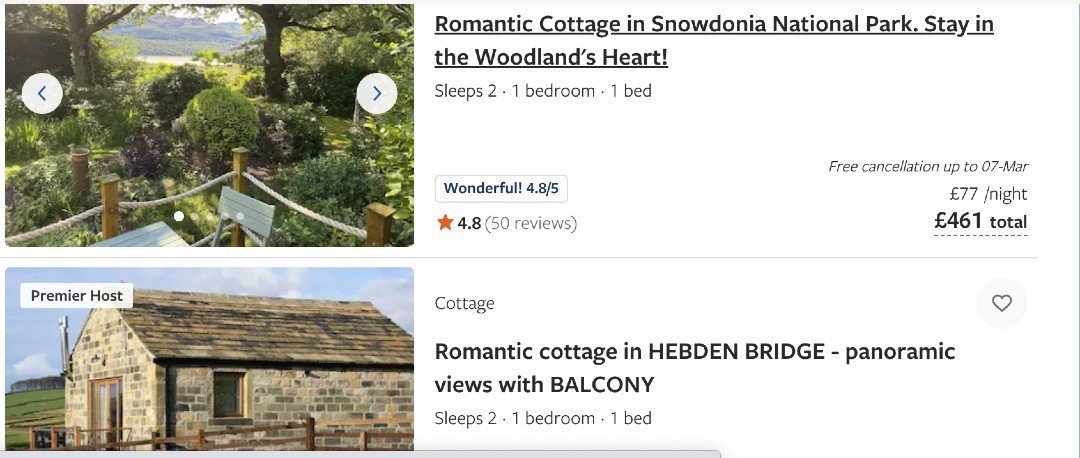
If you want to stand out in a highly competitive marketplace, you’ll need to spend time creating a wow-factor description that will stand out in OTA search results.
Your headline should make travellers want to click to find out more and your description and photos should make them want to save you to favourites or go straight to book you!
Keep your description fresh with updates for different seasons, new photos and lots of reviews!
It’s also essential to do your market research to ensure that you are priced competitively for your destination and niche. That doesn’t mean you should be the cheapest, you’ll need to establish a happy medium to make you both attractive and competitive, but also not so cheap that you will not attract those ideal guests who want quality over budget.
Check out our recent article with tips on writing your vacation rental description.
How many photos should I publish in my channel listing?
The short answer to that is as many as possible!
Did you know that the number of clicks your OTA listing gets, influences its ranking in search results? So the more photos, the more clicks!
Most OTAs will recommend having at least 2-3 photos per room and exterior, and it’s also a good idea to add destination photos into the mix.
Each channel will give you guidelines on what type of photos to publish, in terms of size and quality.

And it’s not just about how the photos influence your ranking. Publishing a lot of good quality photos on your OTA listing will also help the traveller to identify if your accommodation is what they are looking for.
Staging your photos is also an excellent way to help travellers put themselves in the picture. The more life you bring into your photography the better.
Check out this article on the best examples and tips for your vacation rental photography.
What happens when I receive an enquiry or booking?
Once your listing is published you should start to receive enquiries and bookings.
If you have enabled instant booking you will receive direct reservations. Otherwise, you will receive booking requests or questions about the booking or accommodation.
All initial contact is made through the OTA system via your account inbox. Once the booking is confirmed some platforms then open up contact between host and guest, providing your contact details to the guest or vice versa.
What is Instant Booking?
Instant Booking is a feature offered on Airbnb, Booking.com, TripAdvisor and other OTAs allowing guests to instantly book your accommodation without having initial contact with you to enquire about rates and dates.
Airbnb claims that your bookings can substantially increase (+20%) when you enable the instant booking feature, as travellers want to make decisions and book without waiting for a confirmation from the host, at which point they may decide to go off and book another property, where the host is quicker to respond.
Hosts and property managers that enable instant bookings also win more last-minute bookings and there is less admin to do for each booking, as you don’t have to carry out a conversation with the traveller answering questions before they book.
How do I get paid for my bookings through an OTA?

In most cases, when you receive a booking, payment will be processed through the OTA. They will take payment from the guest and each channel has a policy on how and when you get paid.
Very few OTAs will allow you to take payment directly from the guest. This is to ensure that payments are secure and to avoid fraudsters publishing adverts and stealing booking payments. This security precaution lends confidence to the guest at the point of booking, so although you may not receive instant payment, you will have a confident guest booking.
How important are reviews and how do I get them?

Reviews are valuable for both hosts and guests. Positive reviews are read by potential guests, they enhance your reputation and help them make the decision to book with you.
It’s a win: win situation. You enjoy more bookings, guests can find accommodation that has been recommended by peers.
If you are in contact with your guests pre, during and post-stay, ensuring their experience is a positive one, it’s highly likely they will leave you a good review.
A good tip is to reach out to the guest the day before they leave, while they are still enjoying their stay and ask them to leave a review. Often once they return back to work and the humdrum of normal life, they forget to leave a review or ignore your requests for a review.
Within your OTA account, you will find a section where you can contact the guest and request a review. Some channels will automatically request a review for you, but giving your review request the personal touch is more likely to engage with the guest.
You may also be asked by the OTA to review the guest, which helps other hosts identify guests who are trustworthy and respectful during their stay.
Although it’s advisable to get guests to review on the channel they booked on, it’s also a highly effective element within your marketing strategy to get your guests to review on Google and which can then be published on your book direct website.
For this, you will need a Google Business account , which we will discuss in detail right here on your.rentals blog .
Streamline your Airbnb bookings, sync your calendars and manage properties and payments through one single channel with your.rentals. Try us, it’s free to sign-up!
Submit a Comment Cancel reply
Your email address will not be published. Required fields are marked *

Short term Rental Software

+39 0473 538800 Zona industriale 1/5 - Eurocenter . 39011 Lana South Tyrol Italy [email protected] www.additive.eu . VAT-ID IT02476330218
Online travel agencies (OTAs) offer users the possibility to book their holidays online. Well-known platforms such as Booking, HRS, or Expedia provide additional information like hotel reviews, travel tips, or package holidays. Often OTAs also act as tour operators. Hotels and tourism-related businesses can register to reach potential guests. In order to do so, information such as room availability and prices must be provided. If a stay is booked through the online travel agency, usually the hotel or tourism-related business has to pay a commission fee. Nowadays the majority of reservations are made via online travel agencies, transforming them into an important distribution channel for tourism businesses.

IMAGES
VIDEO
COMMENTS
Kayak. Priceline. Orbitz. You know them, and maybe you even swear by them to book your flights or hotels. These names and many more are online travel agencies, or OTAs. From the big names to the small, these are some of the most popular flight search engines to hunt for a bargain. And while we tell readers that there's no search engine out ...
Online travel agencies are companies that sell you flights, online. They act as a middleman between airlines and consumers, though their prices can often be cheaper than booking direct. Most people are familiar with top OTAs like Expedia, Orbitz, Travelocity, Hopper, and Priceline. There are hundreds, if not thousands, of smaller OTAs as well ...
An online travel agency (OTA) is a website that acts as a search engine for travel. They connect providers across the travel industry to help travelers easily plan their trips. On OTA sites, travelers can often access package deals with accommodations, airfare, cruises, rental cars, and more. Over the years, online travel agencies (OTAs) have ...
An online travel agency (OTA) arranges and sells accommodations, tours, transportation and trips on an online platform for travelers. They are third parties who sell services on behalf of other companies. Usually, these OTAs offer many benefits with added convenience with more of a self-service approach. They also include a built-in booking ...
An Online Travel Agency (OTA) is an online or app-based marketplace where consumers can browse, book, and pay for hotel rooms, transportation, lodging, airfare, restaurants, and experiences. Customers book directly with the OTA and the OTA confirms with the service provider. Therefore, the OTA has a relationship with the customer, not the ...
An OTA (Online Travel Agency) is a website or platform that allows travelers to book travel-related services such as flights, hotels, rental cars, and vacation rentals. Learn more about OTAs, how they work, and how property managers can use them for maximum benefit.
An online travel agency, or OTA, is a website or mobile app that allows users to search for and book travel services such as flights, hotels, car rentals, cruises, and activities. The booking is made directly with the online travel agency but confirmed by the service provider, such as an airline or a hotel. As a customer, your relationship is ...
17. eDreams. eDreams is a Barcelona, Spain-based OTA offering flights, hotels, car rentals, holiday packages, and travel insurance. The company currently operates in 40 countries, including Spain, Italy, France, Portugal, the UK, and the U.S. In 2011, eDreams became the first international OTA to expand into Turkey.
Online Travel Agency (OTAs) is a web-based travel company that lets customers research and instantly book travel products or services via an online platform. OTAs sell a range of travel-related services to other companies or travel providers, thus acting as third parties.OTAs can provide access to customers at different locations and handle ...
An online travel agency (OTA) is a web-based marketplace that allows consumers to research and book travel products and services, including hotels, flights, cars, tours, cruises, activities and more, directly with travel suppliers. Every day, millions of travelers around the world use OTAs to plan leisure and business travel.
What Does OTA Stand For In Travel? OTA stands for online travel agency. OTAs are third-party websites that allow travelers to book flights, hotels, and other travel arrangements. OTAs can often offer lower prices than booking directly with a hotel or airline, but they may also charge fees. OTAs are a popular way to book travel, and they offer a variety of features and services that can make it ...
OTA stands for online travel agent or online travel agency. Online travel agencies are online companies where travellers can book hotels, flights, car hire, or even entire vacation packages. Examples of popular online travel agencies are Booking.com, Expedia, and Airbnb, among others. For a hotel, the definition is slightly different.
An online travel agency is a website where travelers can book flights, hotels, rental cars, cruises, tours, vacation packages, short term rentals, and more. The first OTAs launched in 1996: Travelocity, which stemmed from a partnership between American Airlines and Sabre, and Expedia, which was created from a partnership between Microsoft and ...
Airbnb Booking Expedia Google (Google Travel) Kayak OpenTable Oyo Tripadvisor Trivago Key highlights of the business models from travel and accommodation platforms: OTAs Business Models Recap OTA Business Model Description Key Features Expedia Aggregator Model Aggregates flights, hotels, car rentals, and vacation packages from various providers. Earns commissions and booking fees ...
Updated April 2023 - Online Travel Agents (OTAs) can provide your tours and activities with massive exposure. To distribute tours and activities globally, you'll need to partner with them, so here's everything you need to know about working with OTAs, how they differ from partnering with travel agents, and the meaning of OTA in travel.
The definition of an online travel agency (OTA) is a website that sells travel-related products, including airline tickets, car rentals, cruises, experiences, accommodations and more. Vacation rental managers would utilize OTAs that specialize in renting temporary housing to travelers. Some well-known OTAs in this category include Airbnb ...
An Online Travel Agency (OTA) is a web-based marketplace designed to help travelers research and plan their vacations. Online travel agencies help consumers book flights, hotels, cars, tours, or vacation rental homes directly from the supplier. Online travel agencies make reaching potential guests easier than traditional marketing and provide ...
Understanding online travel agencies. Before we jump into the specifics of choosing the right OTAs, it's important to understand what online travel agencies are. An OTA is a third-party platform that allows vacation rental owners and management companies to list their properties and rent them out to travelers.
OTA stands for: Online Travel Agency. OTAs are online companies whose websites allow consumers to book various travel related services directly via Internet. They are 3rd party agents reselling trips, hotels, cars, flights, vacation packages etc. provided / organised by others. Travel shopping via online agencies has become very popular nowadays.
In the U.S., domestic OTA travelers spend 12 percent more on meals and drinks, 6 percent more on activities, and 27 percent more car rentals than direct hotel bookers, while Mexico's domestic ...
An Online Travel Agency is a website that traditionally offers both search and booking capabilities. OTA services usually include flights, hotels, and rental cars, with some also offering vacation rentals, cruises, and events/activities. A Metasearch Engine is one overarching search engine that aggregates data from various sources (including ...
As a short-term rental host, you will advertise your accommodation on the OTAs or Online Travel Agents which specialise in travel accommodation. You create an account and the OTA promotes your property around the world, advertising the rates, details and photos. It means that travellers can see all their options in one place with a simple ...
OTA. Online travel agencies (OTAs) offer users the possibility to book their holidays online. Well-known platforms such as Booking, HRS, or Expedia provide additional information like hotel reviews, travel tips, or package holidays. Often OTAs also act as tour operators. Hotels and tourism-related businesses can register to reach potential guests.